#'the story was predictable and full of cliches because they had a fight scene in an elevator' its literally an action movie bro
Explore tagged Tumblr posts
Text
Me when I don't like a movie: Ugh I can't stand when people say shit like "If you didn't like this movie, you just didn't get it." I understood it just fine. It was just a bad movie! People are so goddamn condescending.
Me reading bad reviews for Monkey Man (2024): None of you understood this movie at all actually
#'the story was predictable and full of cliches because they had a fight scene in an elevator' its literally an action movie bro#'the whole character arc was about spirituality and trauma which has been done before' im sorry????#you didn't get it!!!!!!!!#monkey man#monkey man 2024#im fully doing this to myself lmao no one forced me to read these#i was just curious if i would see any interesting criticisms but no. people are just upset that a movie contains tropes
90 notes
·
View notes
Text
Post Grondor Field AM Analysis
I'm prefacing this by saying that I'm still not sure I can write a good analysis of this scene for two reasons:
1. I don't know what comes after, and
2. I'm very emotionally involved in what happened.
But I tried my best. One thing is for sure though, what happened in Grondor in AM was an incredibly significant turning point for AM and Dimitri and my thoughts and analysis on it will definitely expand as I keep writing about and playing the game.
Part of me is just so happy I got to see Dimitri's supports, have the inevitable turn around, and get to do things like tea and dinner time again that it's hard to be objective about this scene.
And by "this scene," I don't mean that actual fight at Grondor, but everything from Fleche's attack to Byleth's words in the rain later.
It wasn't all about Byleth . . .
Given how poignant Dimitri's character arc has been so far, I had a deep rooted fear player-pandering would ruin it. Byleth, as a concept, isn't bad, but too often the heaps of praise feel underserved and other things (like Claude's intelligence, Edelgard's relationships with everyone else) get ignored to make more room for player-pandering.
Thankfully this did not happen. Byleth, throughout the early chapters of AM's part 2, failed to reach Dimitri. And, honestly, seeing Byleth actually struggle for once has done wonders for how I view her character. Still, I worried that player-pandering-power, rather than something that felt earned, would cause the inevitable eye-opener for Dimitri.
But it wasn't just Byleth. Fleche's vengeance kicked everything off, what veered Dimitri away from his fate in other routes. He accepted his death at her hands, not bothering to defend himself. Rodrigue stepping in the way and his parting words forced Dimitri to confront things he'd ignored. Throughout AM so far, people have posed questions to Dimitri who refused to answer them because he didn't want to face what they asked. But Rodrigue dying for him, spending his final words telling Dimitri to live for himself - combined with Fleche's attack - forced Dimitri to confront things he avoided. It wasn't until after all of that when Byleth steps in.
And Byleth didn't "fix" him either. Dimitri's supports show a young man who's still very much struggling with his mental health, poor self-image, his previous actions, and wondering if he deserves not only to live for himself - but if he even deserves to live. Byleth didn't hand-wave Dimitri's problems away.
Everything about the scene is stronger because it didn't fall back on player-pandering, but more earned, realistic, and dramatic actions and consequences - including Byleth's involvement which felt far more earned than usual because of prior failure.
But I wish Dimitri's friends played a bigger role.
Not everything was perfect though. I wish we got a little more than we did from Dimitri's house mates - especially his childhood friends Sylvain, Ingrid, and extra special mention to Felix and especially, especially Dedue.
Throughout all of AM, none of the above mentioned characters feel utilized to their full potential. This isn't a problem exclusive to AM, and by all means it's far from the biggest offender, but given how close all the ties are in AM, it's felt when it's not there.
I still don't know what exactly I would've done with them. Maybe I'd need to make the game an actual novel to do it, and you can't forget how perma-death has historically held back games at times, limiting major moments to a select few "retreat" candidates.
Still, though, getting a bit more from Ingrid, Sylvain, Felix, and Dedue would've made the scene even more powerful.
I actually really liked the scene in the rain.
I haven't made it a secret that I dislike Byleth. Or maybe disliked is more accurate. Lately I've been rethinking my stance on Byleth, in part because I've heard from people who like her or found ways to make her work and from my own thinking about the game while planning future write ups.
I don't think it's Byleth I really dislike, but the player-pandering. Separating the two isn't easy, but it's easier since I've starting coming around to seeing Byleth as her own character.
There's been a few moments that made me care for Byleth, and this scene in the rain was one of them. Because she didn't just fix everything. She tried and failed for months to reason with Dimitri, and despite everything she never gave up on him or failed to keep offering her hand.
I'm not going to lie. I got all the bubbly, heartwarming, heartbreaking feels the writers wanted me to in this scene. Seeing Byleth reach for something and fail, and then finally, finally get through was rewarding in a way many of Byleth's prior accomplishments aren't because this one felt earned. And by God did she earn it.
Some people will likely disagree with that last point, but I disagree with them. She asked Dimitri hard-hitting questions, forcing him to come to unpleasant conclusions rather than trying to force him into anything. She kept Dimitri from veering to far off course, even at expense to herself when she killed Randolph. She saved Dimitri from Fleche when he refused to save himself. She quietly supported him, coaxing out the good she knew was still there and refused to give up on.
I'd never in a million years say someone in real life should put up with Dimitri's toxic behavior and verbal abuse, even considering his extreme trauma and aggravated mental illness. But seeing someone fuck up so badly still get forgiven, still get supported, still struggle but honestly change for the good, still get loved, start to accept and forgive himself through the power of love and forgiveness from others is very powerful, especially since media so often downplays those "softer" things as weakness in comparison to the "badassery" of ambition and stoicism. Using Byleth, who previously had little experience with feelings, who was encouraged to experience them in healthy ways by Dimitri, return the favor isn't really the worst choice.
It's cliche, but cliches aren't always bad.
The mentor dies. Redemption in the rain. Revenge against the protagonist's actions opens their eyes. Etc . . . This scene was chuck full of cliches, but that's not necessarily a bad thing.
Tropes serve an important narrative purpose because a writer can rely on them to convey a message to the audience that either saves time or sets them up for something unexpected or even expected. Fire Emblem has always and will always be incredibly cliche and full of tropes. It loves tropes so much there's in-universe ones that make some unit or character discussions sound like a foreign language to people outside of or new to the fandom, talking about "Ests" and calling someone a "Camus."
What matters is if a story pulled something off well, not if it's terribly unique. A mentor dying is powerful because it forces the student to grow. Redemption in the rain is high symbolic of water washing things away + the somber atmosphere rain creates. Someone trying to get revenge against a character provides an eye-opening experience about the ripple effect of their actions. We see these things in fiction all the time because they work.
All the tropes worked like expected in this scene. Using images instead of cut scenes did make less of an impact, but more on that later.
Tl;dr: There's nothing unexpected or terribly unique about what happened. It was honestly painfully predictable, but that doesn't make it bad and is in a series that does this all of the time.
The voice acting carried because those images can't.
A major downside to this scene is that it used vague images instead of a cut scene. I get that budget and time were likely concerns, but many cut scenes from earlier in the game seem rather trivial. Did we really need that dance one? Really? I don't think so.
This was a hugely important, action heavy moment. Using one or two still images to convey everything that's happening and all those emotions, really makes it less than it could've been.
That said, the voice acting saves it. I've raved about how amazing Chris Hackeny is as Dimitri, so nothing new here. Rodrigue's and Fleche's VAs also did a fantastic job. No one oversold or undersold the emotions. Even without the cut scene, you felt what happened thanks to the skill of the actors. This scene would've been so much harder to engage with without them, if this was an older FE game where all you got was text. This is 100% one of the moments highly elevated by the decision to have a fully voiced game and choosing high caliber talent (let's not talk about Radiant Dawn's voice acting).
Questionable support timing.
One issue I had came right after the scene when I viewed Dimitri's supports. The nature of some - like his with Raphael and Alois - didn't quite line up with the character I saw in dialogue right after. I wish they staggered them a bit more or got picker about what you could get in part 1 or 2.
This isn't limited to Dimitri either. In the same support batch, I also got a Marianne B support where she still had no confidence or self-worth. And then like 10 minutes later I talk to her in the monastery and she mentions about how seeing all the death in Grondor made her value her life even more.
In the past, I've also received entirely valid opinions that Dorothea in part 2 is hard to understand because she's cherry and flirty in her supports, and morose and hates the war in her monastery stuff, making her seem inconsistent.
It's a bit jarring. It's not really an issue for characters who don't change much like Edelgard or Raphael, but even for characters with more subtle differences than Dimitri, Marianne, and Dorothea - like, say, Lorenz - you get a lot of weird stuff because of supports. I just think Dimitri's stands out because he's a main character with a really prominent, important turning point for his growth.
86 notes
·
View notes
Text
Castlevania Season 4: I’m not mad, just disappointed
Season 4 is poorly written fanfiction, which is...better than a lot of things could be, I guess.
Spoilers below the cut.
Content warning: trauma, sexual assault, psychological manipulation
The Gods Have Had a Change of Heart
Or, “Season 3 Blocked and Ignored”
Season 3 felt like the fabric of the universe had been twisted just to inflict additional pain. Season 4 overcompensates in the other direction; trauma evaporates, and good things happen for no other reason than to make our favorite characters happy.
The Season 3 finale left two characters in particular totally devastated: Alucard and Hector. Alucard is violently betrayed in a horrifying sexual assault by the first two people he’s spoken to since Trevor and Sypha left. He ends up killing them in self-defense and puts their bodies on stakes outside the castle, alluding to his father’s habit of doing so and potentially hinting at a turn toward evil. Hector is seduced by Lenore and then enslaved using a magic ring.
Yet at the start of Season 4, it’s as if these things never happened. Alucard is troubled, but not totally devastated, certainly not evil. Taka and Sumi are referenced in exactly one conversation with new character, Greta, in which she says the rather tactless throwaway line, “I had a boyfriend and girlfriend at the same time once. But they never tried to kill me.” Hector is nominally imprisoned, but immediately seems highly agentic, perhaps even more so than before. He studies, lays traps, and makes secret plans with other people. Furthermore, his relationship with Lenore is completely transformed. From falling to his knees in abject horror and despair at being enslaved, he suddenly switches to light banter, in what is apparently a basically okay, mutually enjoyed romantic/sexual relationship. Manipulative, selfish Lenore is now a sympathetic character struggling to reconcile her own role and feelings with Carmilla’s plans.
The events of season 3 happened, remaining canon in the most basic, literal sense. But the emotional weight attached to them has disappeared into thin air.
Not gonna lie, I did breathe a sigh of relief when I saw that Alucard and Hector were okay. I’m soft-hearted! I don’t like seeing characters I like suffer! I mean, conflict is important, and I can deal with (or even enjoy in a certain sense) seeing characters suffer if it makes sense and serves a narrative purpose. But as far as I can tell, the season 3 finale was nothing more than lurid, meaningless violence. I probably wouldn’t have continued watching the show if it devolved into nothing more than finding novel ways to torture the characters.
Still, it doesn’t feel quite right to pretend like nothing happened either. Or, really, not that nothing happened, but that those things didn’t matter, didn’t hurt, didn’t leave lasting scars. That’s...almost kind of worse.
But, I thought, I can sort of forgive this sudden shift in the stars, given that there may have been some sort of change in creative direction relating to Ellis’ decreased involvement with the show.* Plus, season 3 was insanity. It’s not like it was full of great writing choices, so if we quietly ignore some of them, maybe that’s for the best.
*I only later learned that Netflix actually chose to continue with Ellis’ season 4 scripts. It is not lost on me that maybe Ellis doesn’t know how to write about the lasting effects of traumatic sexual experiences or how power dynamics can make a sexual relationship problematic because he doesn’t understand that those things exist.
Characters Being Nobody and Nothing Happening
Pretty Pictures, Not Much Else
Unfortunately, the disconnect between seasons 3 and 4 isn’t the only problem with this season. Although I felt that season 4 was a bit less boring than season 3 (I particularly enjoyed some of the earlier episodes of season 4), it suffers from the same basic problems of Characters Being Nobody and Nothing Happening.
None of the characters experience any significant development, let alone any sort of coherent arc. Sypha has changed slightly, becoming more rough and jaded. I did really like the scene where she talks about becoming the kind of person who says “shit.” I think it really speaks to how entering into a relationship with someone means taking on aspects of their lifestyle, and how that can change you in ways that you can’t predict and therefore can’t exactly “agree” to. Sometimes those changes are good, sometimes they’re bad, sometimes they’re neutral, and sometimes it’s difficult to know. But you have to accept that you’re sacrificing some aspects of the person that you could have been if you chose to live completely independently, or with someone else.
Trevor really hasn’t changed since season 1 when he first decided to take up the mantle of hero again. Likewise with Alucard. Hector and Lenore change, as previously noted, but that change is sudden, jarring, and occurs completely off screen in between seasons 3 and 4. Carmilla dies as exactly as she lived: bitter, angry, and violent. Saint Germain just kind of...gets fucked over in a nonsensical subplot, which is its own whole can of worms.
We also get several new characters in season 4, none of whom have developed personalities or motives, nor do they develop any of those things over the course of the season: Greta, Zamfir, Varney, Ratko.
And nobody. Does. Anything.
Trevor and Sypha spend the entire season trying to explore and aid Targoviste, which comes to absolutely nothing. They’re unable to help anyone, Zamfir dies, and they end up just jumping through a magic portal to the actually relevant subplot in the finale. Carmilla literally does little more than draw maps until she’s ultimately killed. Hector plays a minor role in Saint Germain’s extraction of Dracula from Hell; otherwise, he and Lenore basically just exchange banter. Saint Germain does sort of do some stuff? But it’s often unclear how he’s made his connections, who the people who are helping him are, or what exactly he’s doing in terms of his magic beyond “whatever it takes to get back to his lover.”
Sure, there are fight scenes, but they feel meaningless. There’s no context, no stakes. There’s also a LOT of dialogue, and it is. Not well written. Exposition is embarrassingly clumsy at times, and the philosophical musings are cliche at best, muddled and confusing at worst. There’s just not all that much going on.
That is, except for Isaac. But more on him in a second.
What Kind of Show Is This?
When the plot line adapted from Castlevania III: Dracula's Curse ended with season 2, the show struggled to establish a new identity.
Despite nominally dealing with themes like whether humanity is inherently good or evil and how to cope with wrongdoing and loss, seasons 1 and 2 ultimately boiled down to a pretty generic action-adventure/fantasy plot with found family/power of friendship elements. Main characters Trevor, Sypha, and Alucard don’t really wrestle with big philosophical questions or suffer any major defeats. They know that they have to take down Dracula for the good of the world, and they work together as a team to do it, with a little character development relating to their various backstories sprinkled in.
Then season 3 happened, and things got weird. The trio is broken up for what feels like a pretty trivial reason—Alucard has to protect the castle and Belmont hold, I guess? And the result of that decision is that the dynamics for the three main characters are completely unbalanced.
Ellis openly admits that he basically went feral with the writing of season 3, and it shows. The messaging in seasons 1 and 2 was cliche, but consistent. The message of season 3? Anyone’s guess.
Season 4 reversed the darkening of tone from season 3, but shares its inability to pick a story and tell it.
Isaac is the Main Character
Always has been.
While I can’t say that his character or arc are perfect, I can say that he actually has a character and an arc. He starts off motivated by his fierce loyalty to Dracula, then has to struggle to find his purpose once Dracula is gone. He goes from subservient to agentic. He goes from fully endorsing the genocide of humanity and not caring about his own life to seeing some worth in humans and genuinely wanting to live. He has an interesting moment that deepens our understanding of what night creatures are, while also serving as an exploration of the meaning of one’s fundamental nature. Most importantly, these changes happen naturally over the course of the show. They never feel forced or out of the blue, and while I feel like even more could have been done with Isaac’s character, there’s a lot to appreciate about what is there.
If there’s any thread holding Castlevania as a single, coherent work together, it’s Isaac. Not only is his character the best executed and the most coherent over the course of the show, his character explores themes that are larger than himself and relevant to the show as a whole, like those mentioned earlier: misanthropy versus a belief in the value of humanity; the ability to go beyond one’s “nature” or initial circumstances; and how to respond to being wronged or losing something important to you. Exploring the individual lives of characters is great, but really good writing usually requires going beyond that to reflect on broader questions and ideas. Isaac is the only character here that serves that larger purpose.
Sorry...I Just Don’t Buy It
The season 4 finale is crazy, although in a different way from season 3′s.
Varney being Death makes no sense on several different levels. I’m not going to spend a lot of time picking that particular plot twist apart, but I will talk about why I think it doesn’t work at the largest scale, and how I think season 4 might have been done better.
Last minute twists with zero foreshadowing are rarely a good idea, and this is no exception. Why introduce this “Death” entity at the last minute to be the most important battle of the season? The finale of the entire show, even? Besides the lack of logic or emotional buildup, this robs the show of the opportunity to make use of the antagonists that it already has. Since Dracula died, Carmilla has been the obvious choice for a new big bad. Why hasn’t she done more?
Season 4 feels crowded with characters and plot lines that amount to nothing. Why not bring some of these characters together? If Carmilla is the main antagonist, how come she never meets any of the protagonists (except Hector, who is a pretty minor player in this ecosystem) or even affects them in any way?
Season 4 feels like maybe it was trying to make something out of season 3 and the model that it presented, but it ultimately fails to do so. The writers throw the trio back together at the end anyway, so why not have them rejoin sooner and work together? Maybe Sypha and Trevor’s past experience with Saint Germain could have helped Alucard and Greta piece together what he was plotting sooner, rather than all four of them being completely blindsided by it in the penultimate episode. (Sypha and Trevor know that someone is trying to resurrect Dracula, but they fail to find out any actual detail about the plans, despite their supposed attempts.) Have characters actually do stuff, figure stuff out, advance the plot!
Likewise, maybe Carmilla becomes aware of Saint Germain’s scheming, sees it as a threat, and tries to take him down. Maybe she tries to get involved and somehow use alchemy or the Infinite Corridor to her own benefit. What does it look like when power-hungry Carmilla, who wants to rule the world, finds out there’s an entire multiverse out there? That could easily set her up to be a foil to Saint Germain, causing him to realize that what he’s doing is wrong.
What actually ended up happening in the show feels disjointed and often empty. In particular, most of the events that happen in the last two episodes just don’t really work for me. I didn’t like Trevor suddenly sacrificing himself to this random, new, super powerful enemy, or how the gems and dagger that he found just happened to be the perfect weapon to kill this new enemy, or how he inexplicably returns from the dead.
This kind of thing is what I mean when I say that this season feels like fanfiction. Trevor comes back from the dead for no discernible reason other than that it would really suck if he died. Greta as a character seems to literally only exist to be Alucard’s girlfriend and support him so that he doesn’t have to continue to be alone and potentially turn evil. Alucard’s trauma from Taka and Sumi and Hector’s trauma from Lenore are both conveniently erased. Even Dracula and Lisa are resurrected somehow and get their happy ending. And it’s like, I guess I prefer deus ex machina to the opposite (Does that have a name? When everything is going well but then something terrible happens for no reason other than to make things worse for the characters?), but they’re both bad writing.
God. This isn’t even getting into what happened with the Council of Sisters. And I don’t even really like those characters, but that doesn’t mean I want to see their characters handled poorly.
I’m not sorry that I watched until the end, but I can’t in good faith recommend the show as a whole. If you’ve yet to watch Castlevania, just stop at the end of season 2. While there are some shining moments in seasons 3 and 4 (4 more than 3), it’s just really not worth it.
#review#thoughts#television#animation#adult animation#video game adaptation#fantasy#Netflix#Netflix Original#Castlevania#storytelling#writing#characters#plot#character development#vampires#Isaac (Castlevania)
47 notes
·
View notes
Text
The Best Korean Dramas on Netflix to Watch Right Now
https://ift.tt/3iIUp0r
South Korea is one of the world’s biggest exporters of popular culture. From K-pop to K-dramas, Parasite to BTS, the East Asian country knows how to reach an international audience. Korean TV, especially K-dramas, have long been of interest to western markets, but it’s no longer just the Korean diaspora or romance drama fans underserved by western markets checking out K-dramas, international watchers of Korean dramas have become much more “mainstream” in the last few years, especially with Netflix’s increased focus and investment in the region.
Read more
TV
Why Are Squid Game’s English-Language Actors So Bad?
By Kayti Burt
TV
Squid Game’s Most Heartbreaking Hour is Also Its Best
By Kayti Burt
Netflix has played a major role in this expansion of Korean TV into the global market. The streamer has not only scooped up an impressive backlog of Korean originals as a global distributor, but, since 2016, has been investing in the Korean TV industry at the production level. At the beginning of 2021, Netflix released an official statement announcing the leasing of two production facilities outside of Seoul, citing the move as “another important example of our continued commitment to investing in Korea’s creative ecosystem.” According to the release, from 2015 to 2020, Netflix invested over 700 million dollars in Korean content. The company also has multi-year content partnerships with CJ ENM/Studio Dragon and JTBC.
Suffice to say, Netflix has a solid Korean TV section, filled with some of the best K-dramas around, both new and old. If you’re new to the world of Korean TV or if you’re simply looking for your next watch, why not try out one of the following…
Crash Landing On You (2019)
The absolute top secret love story of a chaebol heiress who made an emergency landing in North Korea because of a paragliding accident and a North Korean special officer who falls in love with her and who is hiding and protecting her.
If you’re at all tapped into the K-drama scene, then you have at least heard of Crash Landing on You if not binged it multiple times. An original production from Netflix, Crash Landing On You pairs rom-com and character drama elements with an exploration of the cultural pain inherent in the separation between North and South Korea. With charismatic and vulnerable performances from veteran K-drama leads Son Ye-jin as South Korean heiress Yoon Se-ri and Hyun Bin as North Korean soldier Ri Jeong-hyeok; some gorgeous production values; and a memorably melodramatic soundtrack, Crash Landing On You is a whirlwind action-romance that was one of the best shows of 2020, full stop.
Kingdom (2019-present)
In a kingdom defeated by corruption and famine, a mysterious plague spreads to turn the infected into monsters. The crown prince, framed for treason and desperate to save his people, sets out on a journey to unveil what evil lurks in the dark.
If you prefer your TV more horror-driven, Korean TV has some notable shows for you. One of the most internationally popular is Kingdom, a historical zombie drama about a 17th century crown prince who has to fight against a mysterious plague of flesh-eating zombies that threatens to overtake his kingdom. Most K-dramas are structured to tell their entire story in one season, but Kingdom has already had two seasons with a third predicted to be on the way, as well as a one-off special that just premiered on Netflix called Kingdom: Ashin of the North. If you’re looking to get into a longer-running K-drama that favors horror over romance, this could be the one for you.
Squid Game (2021)
45.6 billion won. 456 contestants stake their lives on childhood games.
Unless you’ve been living under a rock, you’ve probably already heard of Squid Game, which is on track to become Netflix’s most popular series ever. The Korean social thriller tells the story of a group of 456 desperate contestants who agree to compete in a deadly competition for the chance to win the kind of money that could change their lives forever. Socially relevant and compulsively watchable, Squid Game takes a familiar premise and makes it new again with compelling characters, exquisite visual style, and cultural specificity.
Hometown Cha Cha Cha (2021)
When things go awry in the city, a dentist decides to go back to her quiet seaside hometown for a fresh start. There, she finds herself at odds with the village go-to handyman who’s always up to help and fix what’s broken—perhaps even matters of the heart.
If you’re looking for something a little chiller after the horrors of Squid Game, try Hometown Cha Cha Cha, which is basically a Hallmark Christmas movie in series form (which is to say a cozy romance). The series, which is currently “airing” weekly on Netflix, sees a big city dentist named Hye-jin decide to open an office in the small seaside town of Gongjin, where she once visited with her family as a child. It all happens on a bit of a whim, with Hye-jin not fully prepared for the transition to rural life in a town where everyone knows everyone’s business. Enter Du-sik, the town’s darling jack-of-all-trades, who helps the townspeople by doing any and every job they might need. The two couldn’t be more different, but fate seems to have brought them together. You probably have an idea of what happens next…
When the Camellia Blooms (2019)
Dong-baek (Kong Hyo-jin) is the owner of a small-town bar called Camellia. Her ordinary life turns topsy-turvy when three men enter her life — a good guy, a bad guy, and a miserly guy. What kind of stories will unfold in this sleepy town full of colorful characters?
If you’re looking for another K-drama set outside of Seoul, When the Camellia Blooms is the story of a single mom Dong-baek, who moves to the fictional town of Ongsan where she opens a bar called Camellia. When local police officer Yong-sik declares his love for Dong-baek, she is initially not interested, but the two become closer the more time they spend together. Thrown in a solid supporting cast and a serial killer subplot and you’ve got yourself one of the most popular K-dramas in recent years.
It’s Okay to Not Be Okay (2020)
Desperate to escape from his emotional baggage and the heavy responsibility he’s had all his life, a psychiatric ward worker begins to heal with help from the unexpected—a woman who writes fairy tales but doesn’t believe in them.
There’s still a taboo around addressing mental illness in Korea, which is one of the many reasons why this 2020 drama about Gang-tae, a young man who is a caregiver at a psychiatric hospital, and Moon-young, a children’s author living with antisocial personality disorder, made such a splash. While the romance at its center is great, It’s Okay to Not Be Okay really shines in its exploration of Gang-tae’s relationship with his brother, Sang-tae, who is on the autism spectrum. In a press conference promoting the show (via Metro Style), Sang-tae actor Oh Jung-se said of the character: “If you meet someone like Sang-tae, who is on the autism spectrum, on the street, I think it would be nice if people could think ‘I would like to be with that person’ instead of ‘I would like to help that person.’”
Boys Over Flowers (2009)
Unassuming high school girl Jan-di stands up to — and eventually falls for — a spoiled rich kid who belongs to the school’s most powerful clique.
A K-drama classic, Boys Over Flowers follows working class student Geum Jan-di as she arrives at the elite Shinhwa High School on scholarship, only to meet and be unimpressed by a group of privileged boys known collectively as F4 who rule the school. The drama follows Jan-di as she goes from bullying target of F4 leader Jun-pyo to the object of his obsession. It’s a classic enemies-to-lovers set-up, and one that while cliche, is still worth a watch over a decade later, especially if you’re interested in checking out one of the most iconic K-dramas of all time.
Itaewon Class (2020)
On the vibrant streets of Itaewon, something is about to shake up the local food scene. Going up against the most powerful conglomerate in the industry, underdog Park Sae-ro-yi and his band of determined misfits seek to take over Itaewon and turn their ambitious dreams into reality.
Korean TV knows how to melodrama, and this story of revenge and romance set in Seoul’s popular Itaewon area leans into intense catharsis. Itaewon Class follows Park Sae-Ro-Yi, the owner of an up-and-coming Itaewon restaurant called DanBam that becomes a refuge for a group of social outcasts. Together, they work to take down the same business mogul responsible for the death of Sae-Ro-Yi’s father years earlier. Itaewon Class was extremely popular both in South Korea and internationally, and featured the first transgender character in a mainstream K-drama. Added bonus: the Itaewon Class soundtrack includes an original song from BTS’ V.
Mr Sunshine (2018)
In 1905, a Korean American U.S. marine officer returns to his homeland on a diplomatic assignment. Coping with his painful past in Korea as an orphaned servant boy, he finds himself in a complicated relationship with an aristocrat’s daughter.
If you’re into historically-driven period drama, then check out the beautifully-shot Mr. Sunshine. The K-drama is set in the late 19th and early 20th century in Hanseong, the city that would become Seoul and follows activists fighting for Korea’s independence. The story follows Go Ae-shin, an orphaned noblewoman who trains to be a sniper in the Righteous Army, the civilian militia that fought against the occupying Japanese forces, and Eugene Choi, a man who escaped slavery in Korea to become a U.S. marine, only to return to his homeland where he falls in love with Ae-shin. The series uses real-life history, including Shinmiyangyo, the Spanish-American War, the assassination of Empress Myeongseong, the Russo-Japanese War, Gojong’s forced abdication, and the Battle of Namdaemun as a backdrop for its epic story.
Signal (2016)
A cold-case profiler in 2015 and a detective in 1989 work together to solve a series of related murders spanning three decades using a special walkie-talkie to communicate with each other.
This premise has been used a lot—from 2000 Dennis Quaid/Jim Caviezel thriller Frequency to the 2016 CW TV adaptation of the same name—and for good reason. An analog device allows two people to communicate across time, and they must work to solve a murder together. It not only makes for compelling character drama, as two people become closer but are separated by years, but also is a fresh twist on the serial killer narrative. In K-drama Signal, the analog device is a walkie-talkie, and the characters on either temporal side of it are contemporary criminal profiler Park Hae-young and 1989-based Detective Cha Soo-hyun. If you’re looking for a good crime thriller, Signal could be it.
Hospital Playlist (2020-present)
Friends since undergrad school, five doctors remain close and share a love for music while working at the same hospital.
Like Kingdom, Hospital Playlist is the rare K-drama that tells its story across multiple seasons. The hospital drama just finished airing its second season weekly on Netflix, continuing its story about a group of doctors in their 40s who have been best friends since medical school. A true ensemble drama, Hospital Playlist is perfect for fans of Grey’s Anatomy but feels unique in its centering of a friend-group with a such a long history.
Vincenzo (2021)
Bringing his mafia past back with him to South Korea, Song Joong-ki stars as notorious Italian lawyer Vincenzo who isn’t afraid to lend his bloodstained hands to beat the untouchable conglomerates in their own game.
If you just watched the dramatic opening of Vincenzo, set in Italy days after the death of a mafia boss, you might think you’re in for a self-serious organized crime drama. But the Netflix K-drama quickly shifts into a story much more tonally complex. Part romance, part drama, part action thriller, Vincenzo has something for everyone. It follows Vincenzo (Space Sweepers‘ Song Joong-ki), a Korean lawyer raised by an Italian mafia family who must flee the country following his father’s death. As part of his plan of escape, Vincenzo travels to Korea to recover a stash of hidden gold under an old apartment building set for demolition by a corrupt corporation called the Babel Group. Because of this dilemma, Vincenzo becomes unlikely allies with the group of eccentric citizens who live in the building, as well as with a passionate and moral lawyer who has a vendetta against the Babel Group for his own reasons.
The “Reply” Series (2012-2016)
Take a nostalgic trip back to the late 1980s through the lives of five families and their five teenage kids living in a small neighborhood in Seoul.
The Reply series is one of the most popular cable dramas in Korean TV history. It launched in 2012 with Reply 1997 before continuing with Reply 1994 in 2013 and Reply 1988 in 2015. The ambitiously-structured series follows a group of friends and their kids, telling the story in present-day in addition to flashbacks. Featuring a fun soundtrack, as well as some incredibly performances, the Reply series is well worth a watch for anyone who loves character drama with a nostalgic twist.
Prison Playbook (2017)
With only days before his major league baseball debut, pitcher Kim Je-hyeok unexpectedly lands himself behind bars. He must learn to navigate his new world with its own rules if he wants to survive.
Prison Playbook is much more slow-paced than many of the selections on the list, but this character drama is worth the dedication. Though it’s often touted as a “black comedy,” it’s much more tonally light than that suggests, despite the subject matter. The story follows baseball pitcher Kim Je Hyeok, who is incarcerated days before his major league debut for assaulting the attempted rapist of his sister. It follows his life within prison, along with the lives of some of the other inmates and guards, including his old best friend, Lt. Lee Joon Ho, who is a correctors officer. Created by Lee Woo-jung, who also made the aforementioned Reply series, Prison Playbook is one of the most popular K-dramas in Korean cable history ever.
cnx.cmd.push(function() { cnx({ playerId: "106e33c0-3911-473c-b599-b1426db57530", }).render("0270c398a82f44f49c23c16122516796"); });
Sweet Home (2020)
As humans turn into savage monsters, one troubled teenager and his neighbors fight to survive and to hold onto their humanity.
It’s been well-documented that Song Kang is a K-drama darling. The actor has appeared in many a romantic K-drama, including Netflix’s Nevertheless and Love Alarm. Sweet Home, however, is his rare horror appearance, and it’s well worth a watch just to see Song in a completely different context. Of course, this apocalyptic horror story has other qualities too, and holds the honor of being the first Korean series to enter the U.S. Netflix Top Ten. Based on a Naver (aka Korean Google) webcomic of the same name, Sweet Home follows Cha Hyun-soo (Song), a high school student who moves into an apartment building after the deaths of his parents, only to discover that the building also happens to be the home of a species of monsters set on world domination.
Nevertheless (2021)
Like a butterfly hopelessly attracted to a flower, this art student can’t seem to resist the mysterious young man who captures her attention. But the more they get romantically involved, the sooner she will have to decide—will getting close be worth it, when he doesn’t believe in relationships?
Speaking of Song Kang… Nevertheless is the latest K-drama to star the 27-year-old actor. The romantic drama stars Han So-hee as Yoo Na-bi, university art student who no longer believes in love following discovering her boyfriend has been cheating on her. When she meets Song’s Park Jae-eon, she is immediately intrigued. Though the two share an immediate attraction, they resist entering into a relationship due to their respective uncertainties about love. Based on a popular webcomic of the same name, Nevertheless feels unique in its treatment of modern dating life in Korea, depicting some of the more realistic, often internal struggles of what its like to date in your 20s.
My Mister (2018)
In a world that is less than kind, a young woman and a middle-aged man develop a sense of kinship as they find warmth and comfort in one another.
If you’re in the mood to cry, try My Mister, a drama about a financially-disadvantaged young woman just trying to stay afloat as she takes care of her sick grandmother amid mounting debt and a much more financially-privileged middle-aged man who is also being crushed by the weight of his life. The two work together, and form a (mostly) platonic relationship that helps both of them heal. Understated and deeply emotional at the same time, My Mister will subvert so many K-drama expectations in clever ways.
Memories of the Alhambra (2018)
While looking for the cryptic creator of an innovative augmented-reality game, an investment firm executive meets a woman who runs a hostel in Spain.
If you’re looking for another K-drama starring Crash Landing on You‘s Hyun Bin (and of course you are), then look no further than Memories of the Alhambra, a 2018 K-drama with an absolutely batshit (read: amazing) premise. Hyun stars as Yoo Jin-woo, a CEO who travels to Spain in search of the creator of an AR game set in the Spanish medieval fortress Alhambra. Once there, Jin-woo is pulled into a reality-bending mystery with life-or-death stakes and some unpredictable twists that I don’t want to spoil for you.
Romance is a Bonus Book (2019)
A gifted writer who’s the youngest editor-in-chief ever at his publishing company gets enmeshed in the life of a former copywriter desperate for a job.
Ostensibly based on the TV series Younger, Romance is a Bonus Book is a rom-com set in the publishing industry world. It follows single mom Kang Dan Yi as she struggles to reenter the workforce following her divorce. When he lies about her background to get a job, her life becomes tangled up with childhood friend and publishing phenom Cha Eun Ho.
I began watching this series to see how it compared to the U.S. version of the show, of which I am a fan. Honestly, these two series have only the most superficial details of their plots in common, which is par for the course in many adaptations. Romance is a Bonus Book is much more romance-centric than Younger, which balances the love life of its central protagonist with the many other relationships and concerns she has in her life. But that isn’t a bad thing. They are two very different shows with their own interests and strengths, but if you’re a fan of both rom-coms and the publishing industry, then both Romance is a Bonus Book and Younger are worth a watch.
Black (2017)
A man possessed by death. A woman who can see death. The earthly and the afterworld collide dangerously.
One character is possessed by the Grim Reaper. The other can see deadly spirits. Only Korean can turn this premise into a heartbreaking romance, as the two work together to save people marked for death. If you’re looking for a spooky season watch, you can’t go wrong with Black, which is a delightful (and, honestly, pretty complex) hodgepodge of Korean horror all wrapped up in a rom-com package.
What is your favorite K-drama on Netflix? And what upcoming Netflix K-dramas are you most looking forward to? Let us know in the comments below?
The post The Best Korean Dramas on Netflix to Watch Right Now appeared first on Den of Geek.
from Den of Geek https://ift.tt/3ruYuZf
6 notes
·
View notes
Text
The most used Mexico´ cliches in fanfiction and comics (And surely this can apply to any other OC)
Traducción en Español: AQUÍ
DISCLAIMER:
This post DOES NOT intend to throw shit and attack specific authors or their work, so out of respect we will not mention names. If you have read my other posts you will know that this only has the purpose of entertaining and to give a personal opinion.
Also, this does not intend to be a manual or guide on how to write a good comic or fanfic. It is only a compilation of repetitive elements found throughout these works.
Now, let's continue ...
Hi! How are you doing? I hope you are safe at home, and in case you have to go outside take your precautions.
I have been in Hetalia's fandom for more than a year, and the Countryhumans' less than a year, and both my cousin and I have seen and read enough material from Mexico's OCs, enough to compile in a list the most popular cliches when reading a fanfic or comic which involves this character. As I said at the beginning, this is not a guide of what to do and what not, but we invite creators to find new ways to tell the same stories (or even new ones) differently and to not fall into the predictable.
( Perhaps it is because in my university career one of my teachers was very demanding with coherent scripts and stories, and that she tended to review them 10 times before giving the approval, that I became very demanding with the creation of stories and characters. But that's my personal issue! )
Sarcastically, this should be called "The clichés that cannot be miss for your Mexico´ story" :
1. The Mexico´OC was created ONLY to be the love interest of another character (the author's favorite):
In the same way, the author´ comics and fanfics will be of the romantic genre, and it will involve his favorite ship (or his various ships if he/she is a multi-shipper). Making a brief conclusion, there are few works in which Mexico stands out as a character, without having the love interest, or the famous harem, as the main plot.
And if you were curious, here is a chart that shows the most used ships in the Hetalia´ case, although in 2020 it may have slight changes:
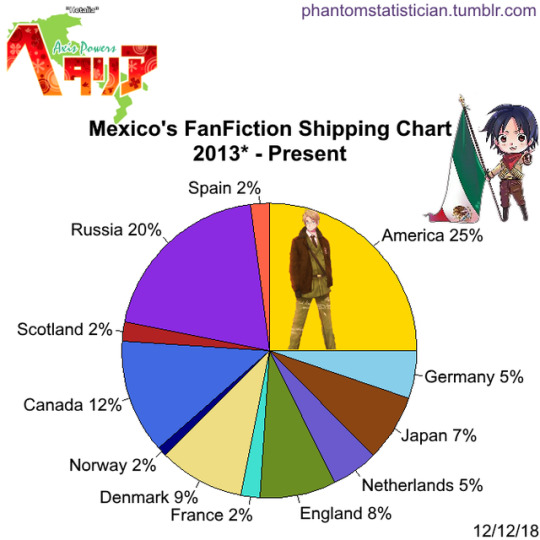
(Denmark and Norway?! I have never found any fic about them being paired with Mexico)
2. María Sue and Gary Estuardo:
More cliché this could not be. Even when I´m mexican myself, I realize that the representation of my country has received the Mary Sue treatment by the fandom, both in Hetalia and in Countryhumas, and mostly by the latino and mexican community. I already talked about this HERE, but I'll summarize it:
Regardless of whether Mexico is a man or a woman:
- They will be the center of the universe, all the characters will kiss the ground they step on, they will be the most cute person in the world, without flaws, and their greatest virtue will be his or her ethereal beauty that will make everyone to fall in love with them, with just an eye blink.
- It´s never their fault and they will never face the consequences of their actions, e.g. causing WW3. What's even more, he or she is just a poor victim of the evil countries that want to take advantage of his/her territory.
- Having got laid or dating half of the world will not cause them serious consequences or a negative reputation.
- Personality? Oh my, that´s very complicated to write, instead I will narrate how my female Mexico arrived at the restaurant with a dress that highlighted her feminine attributes and how her long and abundant hair made more than one person to sigh; Or how my male Mexico wore tight pants that showed his perfect toned legs, and that when he smiled he made blush every country.
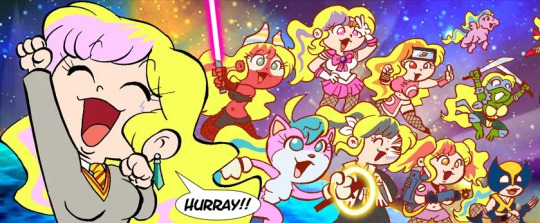
If it was a parody, I'd accept Mexico to be a Mary Sue or a Gary Stu. But usually the authors want you to take the story and the character seriously. So... nope.
3. Plots taken from soap operas, or telenovelas:
Believe it or not, there are authors who have admitted that their Mexico´ fanfics are based on mexican telenovelas. And the worst thing is that telenovelas have the most cliche stories in the world! Think about it, you have a good and humble, but kind of dumb person, who in this case is going to be Mexico, who falls in love with a handsome and rich person, who will obviously be a first world country, but there is someone who wants to finish their romance. You also have forced marriages, fights, misunderstandings, slaps, super dramatic scenes, passionate scenes, cheesy titles...
Mix all this elements together, and you will get:
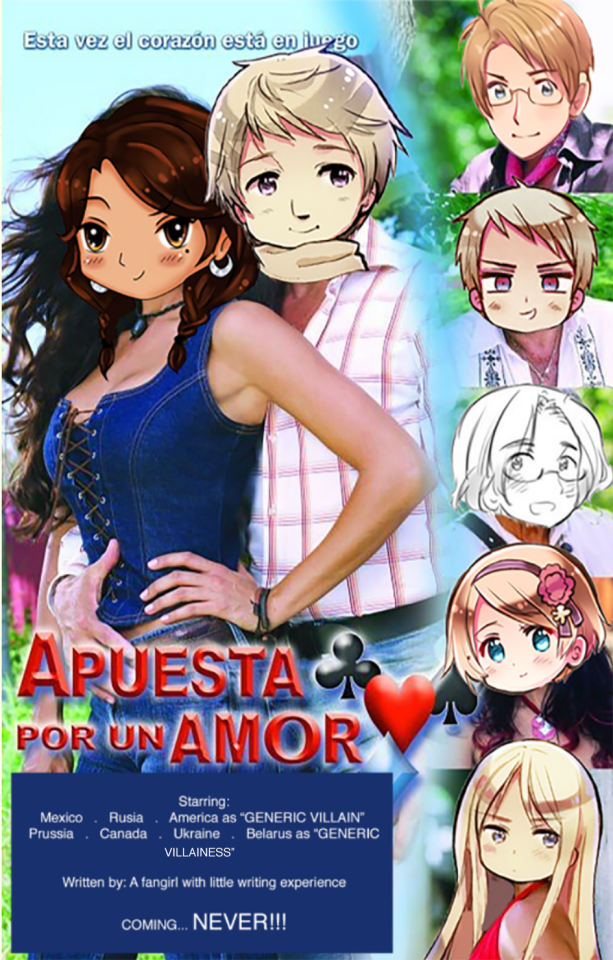
For comedy purpose, we will be using my OC)
4. The fanfic or comic always, ALWAYS, has to start with a world meeting:
I propose a challenge for you and your friends. Gather together and search for Mexico fanfics, no matter the fandom where you all came from. Take a shot, or put a coin in a jar, for every time the first chapter begins at a meeting.
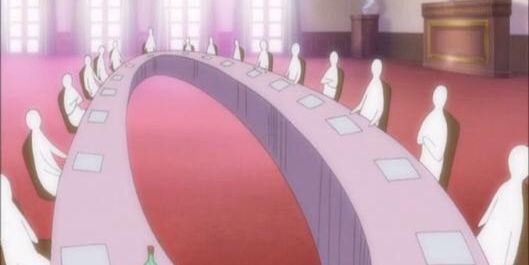
And almost always it is here where the author builds the romantic story, examples:
“It was a normal day in the boardroom, everyone was arguing while Germany (United Nations if it is a Countryhumans fic) tried in vain to put order and discipline. Only a nation was waiting for a certain person with brown skin and delicate features, to enter through that great door… ”
“Suddenly, a brown skin girl with black and curly hair (Seriously guys, where did you got the idea your average mexican girl has natural curly hair?!) entered the room, and the entire room went silent. Everyone who was there had something to do with that young lady, and seeing her there, turned into a full woman, left them stunned. She was gorgeous.”
Another cliché, but this one can be in any story, is: "Realizing that it was getting late, he got up, took off his pajamas, groomed, combed his hair, and put on his yellow shirt with his ...". There are several ways to start the story without the famous world meeting and the character's morning routine.
5. The harem and love triangles (or any other geometric shape):
This cliché could not be missing either. There are a lot of Mexico x TheWorld´ fanfics. As I said before, I am not against the shipping and the harem of Mexico, each one is free to ship whatever they like, as long as there is respect between the community.
But even when an author wants to focus on a single couple, let's take for example Canada x Mexico, he necesarily has to include USAMex and RusMex as secondary couples, and at some point it gets exhausting and reforces the Mary Sue treatment. It seems that for many authors, Mexico's international relations automatically translate into a “romantic relationship”, and not into a friends or business partners one.
And also, the construction of the relationship it feels sometimes very empty. The author doesn't give time to show how they become a couple or how they found the chemistry in the other. In the third chapter they are already making out!
6. The toxicity:
Oh yeah.
I don't blame this clichá, my cousin and I concluded that healthy relationships are rare in Hetalia and Countryhumans. Practically all countries have one or two flaws that at first sight makes them look toxic. And in Mexico's fanfics and comics, particularly those involving USAMex, the character gets involved in a possessive and codependent relationship.
If Mexico is not a dominant male or a femme fatale, it will be a submissive character who will allow all kinds of abuse. Or in each chapter he or she will doubt about his/her relationship, and will make their partner jealous.
To write a healthy relationship, you must work on the characters' strengths and make them both face their flaws, but instead, the authors take these flaws and make them the basis of the relationship.
7. The party´ chapter in which things get ... heavily crazy:
Okay, so we have our first chapter at the world meeting, where we establish the main couple. Now what we need is the stage for the lovebirds to confess their love ... while being drunk. In many works we will find the countries gathered at a party (usually a Latino party), and the author will narrate all the crazy events that occur, including how Mexico and his sweetheart, will confess their feelings after having taken a few bottles, and sometimes this gets to ...
8. The chapter (or chapters) + 18
This is almost a requirement for many fanfic´ writers, and is always written in the same way. The author will narrate you in detail from the moment they begin to undress until the climax moment.
9. Spain will never stop calling Mexico "New Spain", despite the fact that more than 200 years have passed since the country's independence and its recognition:
And in the case of Hetalia, Mexico must have the same last name as Spain: Hernández Carriedo. Yes, in the same way that United States last name is not Jones, but Kirkland, like its ex-colonizer England; or that Belarus last name is Braginski as his brother Russia, and not Arlovskaya.
Also, although Spain continues to call Mexico "New Spain", he will never call Argentina "Rio de la Plata" or Colombia "New Granada". Similarly, England and France will never call America and Canada "13 Colonies" and "New France" respectively. It seems to be something exclusive for Spain and Mexico.
10. Repetitive references and jokes, or lack of knowledge about the country.
Paco the chihuahua dog, Mexico and Sudamericans fighting over the avocado´s name, Mexico having flashbacks of his/her past with the Aztec Empire and with the USA when they were colonies, Mexico complaining about his/her rulers and corruption within the country, Mexico crying over Texas, Mexico demonstrating his/her beautiful culture to other countries …
Not to mention when someone makes an Mexico OC and his knowledge of the country is very basic: tacos, sombreros, Day of the Dead, always hot climate, the wall issue with America, Aztec and Maya as the only ancestors of Mexico, Texas, burritos... Sorry if I sound rude but, those people need to read and investigate more, and watch less movies where Mexico has that yellow filter.
11. Bad translations
Okay, this is something exclusive of the spanish speaking fandom, but I´ll tell you what´s their issue.
Some author had the brilliant idea to make the dialogues of the countries in their respective languages, followed by placing the Spanish translation in parentheses, and from there many followed suit. The problem is when you notice that they don´t speak or understand the language, and instead they use the Google translator, obtaining results like this:

There have been several occasions when I am reading America and England´ dialogues, and it makes me want to write in the comment section: “DON´T USE THE GOOGLE TRANSLATOR! ” I wouldn´t know what to say from the rest of the countries, since my French is very basic,and I have hardly learned one phrase from the others languages.
My advise for these authors is to find a person who is fluent in the language and who can help them with the dialogues. Or even better, try to avoid this cliché, because at the end of the day people will only read the translation, and it is already implied that each country speaks in its respective language. Also doing this is very pretentious.
The less you can do is to add in the dialogues well know words, like adiós, hola, bonjour, ciao...
12. Changing the canon personalities. Or worse: turn a loved character into a villain.
I already said this HERE too. Basically, for the author to make his Mexico an empathic character and to make other countries to fall in love with him or her, they must conveniently change their canon personalities. This applies more in Hetalia than in Countryhumans, since this last one belongs to the community and nobody can establish what is canon and what is not. On the other hand, in Hetalia the characters already have their own personalities, and neither plays the role of villain. And there is a big difference between being an antagonist or a villain, but I´ll let you to investigate it yourself.
This cliché is closely related to the Mary Sue treatment, because if I want readers to empathize with Mexico, I must turn another character into an evil person who is going to put him through hardships. And normally this character is the United States or America, whatever you call him.
If I want Russia or Germany to fall in love with Mexico, I must rewrite their characters and throw out the unstable part of Russia, and Germany's little experience regarding romantic relationships, just to make them the most romantic and sentimental people in the world.
✥ ✥ ✥ ✥ ✥ ✥ ✥ ✥
There you have it! I think I already roasted 80% of Mexico fanfiction and fanart, but is not like they are going to dissapear with this post. On the good side, for every time I cringed reading some of these works, I have saved a good amount money, you must try it. I should try an aside blog where I criticize bad fanfiction... But at the moment, that´s all for today! See ya!
#mun says#personal opinion#hws mexico#aph mexico#hetalia mexico#countryhumans mexico#fanfiction reviews#clichés
27 notes
·
View notes
Photo

Movies I watched this week / 11
Ship of Theseus, The awesome Discovery of the Week:
A philosophical 2012 Indian art-house masterpiece, based on the Heraclitus thought experiment that asks, if an object that has had all of its components replaced remains the same object.
It tells 3 separate stories that are seemingly unrelated. The first introduces a young Egyptian photographer who is blind and creates her street art based on sounds she hears. The second is about a dying Jain monk, fighting to ban animal testing in India. The third is about a poor bricklayer whose stolen kidney was sold illegally to an unsuspecting Swedish man. The uniting finale is a moving reflection on Plato’s allegory of the cave.
It may not sound appealing, but the film is absolutely beautiful, surprising, compelling and original.
Also found on YouTube in 720p BluRay Quality. Good reviews by Nona Prince and an essay: Visual Metaphors in the film (Please read only after seeing the film itself)
✴️
First watch: Laura - 1944 absurd film noir mystery directed by Otto Preminger. “I shall never forget the weekend Laura died.”...
Style over substance. 8/10.
Also, I didn’t know that Vincent Price was so tall.
Theme from film.
✴️
Steven Soderbergh‘s The Girlfriend Experience. Real life mega porn star Sasha Grey in her first cross over role. She plays a high-end escort who is paid to act as her clients' emotional companion.
I loved it as a first act, but the story was missing act two.
✴️
The fantastic history of R. "Bob" Dobbs and The Church of the SubGenius! Better than wikipedia!
✴️
I haven’t seen any Louis de Funès films for over 50 years. Surprisingly, Jo, The Gazebo, a typical 1971 screwball comedy, stayed relatively funny and fresh with all the mimicry and jokes I remember from my childhood. 5+
✴️
The Night of the Iguana, John Huston’s classic drama. Richard Burton is a disgraced minister at the end of his rope who is ready "to take the long swim to China". Tennessee Williams in Puerto Vallarta.
“What is important is that one is never alone...”
✴️
2 X Alfonso Cuarón:
* Road to Roma - Interview with Cuarón, deconstructing the ‘making of’ his wonderful 2018 movie. Seeing the colorful process Behind the Scenes, in comparison to the Black and White canvas, is breathtaking. 10/10.
* His previous film - Gravity: A mainstream movie with only 2 actors. Exciting, too thrilling for me.
✴️
First watch: Russian Ark, an experimental story and a technical tour de force. It was recorded in a single, unedited take of 96 minutes at the Hermitage Museum in Saint Petersburg, on 23 December 2001, with a cast of over 2000 costumed actors. It follows 300 years of Russian history, guided by a 19th-century French diplomat.
✴️ Lost in America - “This is just like ‘Easy Rider.’ Except, now it's our turn. I mean, we can drop out and we can still have our nest egg!”
Loved it then, loved it now.
✴️
Another, similar film from the same time (1991) and atmosphere, Steve Martin’s LA Story - Adored it then, loved it now.
“Some of these buildings are over TWENTY years old!”
✴️
Of Alan J. Pakula‘s “Paranoia Trilogy”, I always preferred “The Parallax View” and “All the President's Men”. Maybe because even Pakula had a hard time describing an affair between a call girl and a client without resorting to tired old cliches. But watching Klute for the first time in many years, all but the predictable ending is actually first rate.
He should have called it Bree, though.
Appreciation of composer Michael Small, who scored Klute as well as eight more of Pakula’s movies.
✴️
Butter - a nearly-wonderful comedy about a little orphaned black girl who competes at a butter sculpture contest at the Iowa State Fair.
✴️
Hitchcock's favorite plot, “Innocent Person Wrongly Accused”, in North by Northwest, with opening-credits sequence by Saul Bass, and still effective crop dusting attack.
Most of it is ridiculously dated (55 year old accidental hero Cary Grant who has to get his mother’s approval, and the final shot of the Freudian train speeding into the tunnel). It’s still a fun ride.
✴️
My first Almodóvar, All About My Mother. A melodramatic Telenovela world of junkies, transsexuals, AIDS, prostitution and the theater. It’s only during the second half that the film clicked for me.
✴️
The Visual Effects of Psychedelics, from Effectindex. Must be watched in full screen. Real life example.
✴️
I spent 4 long hours entangled with Woody Allen’s sexual abuse in the new disgusting documentary Allen v. Farrow.
Technically, the worst part of this are the unbearable, constant layers of background music that drowns every scene with emotional guidelines. I wish they would stop doing it once and for all.
Not necessary me, but Why I Will Never Watch a New Woody Allen Film Again.
✴️
Another short Haring bio - How Keith Haring Injected Childlike Joy Into His Art.
✴️
The 2020 Invisible Man, Peggy Olson version: Somehow-interesting horror premise, but not my cup of tea. Points for the plot twist at the end. 2/10.
- - - - -
Throw-back to the art project:
Annie Hall Adora.
- - - - -
(My complete list is here)
1 note
·
View note
Text
Klaus, a wonderful christmas tale (Spoilers)
Have you seen something so pretty you started crying?
Tiny sinopsis: ¨You follow Jesper, a really spoiled (almost rotten spoil) man who is the son of a well known business man, owner of a post-mail company. Tired of his son´s lack of direction and apathy towards working for himself, he sends Jesper to a small town in an island called Smeerensburg where the people are hostile towards him and each other. A usual fight between two clans who have sworn to hate each other till the sun dies, leaves the postman really distraught and hopeless. During his morning walks, he tries to get any letter from the villagers only to discover they do not write at all. In one of his desperate moments he finds out a woodsman lives deep in the forest and while searching for said man he discovers a workshop full of old toys.¨
Animation:
The animation is breathtaking and knowing it´s 2D makes me hope there will be more movies with this kind of animation. The lighting is amazing, there are some spots that look awkward or kind of as if it was a bad render although it only happened in a scene with a fireplace. The imagery, the backgrounds, the details, I felt the cold from that movie. The change of atmosphere and contrast at the beginning and at the end are so noticeable in such a tender way, even when it´s still freezing and snowing you can sense that warmth and coziness from a home, that nostalgic feeling from childhood. This imagery is the feeling of Christmas.
Voice acting:
Pretty swell! Jason Schwartzman (Jesper) really fits the egocentric with golden heart character while J.K Simmons (Klaus) fits the really strong, quiet and mysterious Klaus. There are certain frames that the voice acting doesn´t fit completely, or the scene seems longer than it should. When Jesper meets Klaus for the first time, he screams and the expression is more exaggerated than the actual scream. Other than that the rest of the cast did an excellent job from being a secondary to third character in the story. The child voice actors did awesomely too, they do sound like children and express themselves as that. The child wonder and curiosity can overflows in their acting.
NOTE: It´s hard work to practically rewritting the whole movie to another language (considering certain jokes or expressions dont really translate well), let alone getting the proper voice actors, so I want, will and must watch the Spanish version for this movie. Probably in its ¨real¨ language which is the Spaniard Spanish since this movie was made by a Spaniard studio. Both spanish versions are a must to watch for me (I´m mexican and I´m studying to work in productions and such)
The story and the characters:
Well, well, well! What do we have here? Another Christmas story????
Or as I like to call it ¨Rise of the Guardians The Prequel.¨
In al seriousness, the plot is simple: spoiled character is spoiled, father send him to a place with non of his comfort with conditions, spoiled character makes a plan to accomplish said conditions and at the end he becomes a better person due to circumstances. It´s a solid formula. The story can be predictable for people who are way more perceptive than I and does have certain cliches, but here´s the thing... DONT. EXPECT. ORIGINALITY. ORIGINALITY. IS. A LIE.
What POPS in this story is how the characters evolve. Jesper isn´t even useless person, he does know how to work with what he has. He is smart and resourceful, which is not typical for the spoiled rich brat trope (at least from the materials I´ve seen, a good example being Kuzco). Klaus´ evolvement is subtle, not in your face which is shown in the most enjoyable way, you can see how he opens more and more to this silly postman and goes form quiet and tired to a joyful, cheery old man who howls with laughter ones he listens to the children´s ideas of him.
It is a tale about a man who change the lives of the people around him, whether he wanted or not, whether he meant it or not, how kindness can change the lives of people, how joy can make hatred melt away, how being nice to each other can be its own reward to be happy, how our actions have consequences, how, quote: ¨A true act of goodwill sparks another.¨ It´s inspiring, it´s enjoyable, it´s adorable, it´s wonderful!
The rest of the characters are enjoyable to watch. Not all of them are flesh out, though that´s not entirely a bad thing. We dont need to see a super heartfelt moment with the villains specially when they are completely comic relief. The children, even thought they are almost background characters, they have A HUGE involvement in the development of the story and their actions are the best portrayal of their wonderful quote. Because of their actions, the adults learn to coexist and meet the people who they´ve been fighting for years. The children changed their parents for the better.
Alva is the most flesh out secondary character, who goes from this apathetic, grumpy and tired fish seller to the hopeful, happy, excited and optimistic teacher she always dreamt to be and it´s the best example of what kindness and true act of goodwill can do.
And even Jesper´s father is shown to have a tridimensional personality, being harsh to his son so he makes something for himself and still feeling guilt and worried for his son well being and even if it isn´t shown we known he does love his son and has told him he is really proud of him. It´s a man who cares but felt he had to be really strict to his son who was really not going through a good path.
Conclusion:
In world where kindness is lacking, in a world that is hostile and gray like Smeerensburg 24/7, 365/366, in a world where we still feel hatred for years, in a world where we expect something in exchange of common courtesy or for a good deed, we need this kind of movies to remind us we shouldn´t expect a reward for being human. We should act respectful, we should try to be better, we should be kind to others. And when a person is awful and full of hatred, kindness works way better to throw them off than any act of violence.
Sometimes we are in dark places, sometimes the world seems to be getting into a deep blackhole full of bad thoughts, sometimes people hate what they dont understand and they hurt other people who are different for no reason, sometimes we feel so much we are in so much emotional pain we feel physically sick...
We gotta remember there can be some light in those gray days, there´s so many good things that someone can do: an old friend sending you a ¨Hello! How are you?¨, sharing your food with someone else, giving your old clothes to other people who have nothing to wear, making food for the people in the streets, spending time with your grandparents, helping around the house...and more!
The little things make a huge difference, little acts of kindness make a really big difference.
We have to remember to be human to each other, we have to stay put for others so when the dark times come we are ready to be there for each other.
This movie represents what the Christmas spirit should be. It´s not about the toys, it´s not about getting something in return. It´s the joy of giving to others.
A true act of goodwill sparks another but it has to start with someone.
Will you begin it?
Happy New Year to everyone, hope this one is the start of a big chain of kindness, this world needs it more than ever.
-Sincerely hopeful, T.O.D
#klaus#2019#movie#christmas movie#christmas#christmas 2019#klaus 2019#jesper#alva#animation#spa studios#spain#españa#spanish#english#animated movie#animated movie 2019#2D animation#2D#wonderful#amazing#gorgeus#review?#thoughts#opinions#thought#opinion#recommend#messy writting#writing
29 notes
·
View notes
Text
Continuing with The Vein of Gold exercise, more films, more themes. I’m so predictable, y’all.
(Aka what Captain America has in common with Matilda)
9. Matilda
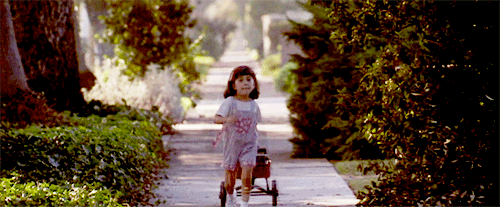
Nobody does montages like this film. There are at least three, and they’re all amazing.
10. Teenage Mutant Ninja Turtles (live action I, II, and III)

(I didn’t hallucinate these films, okay??)
11. The Shadow
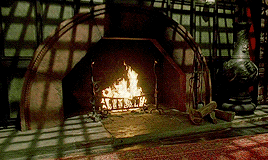
12. Jurassic Park
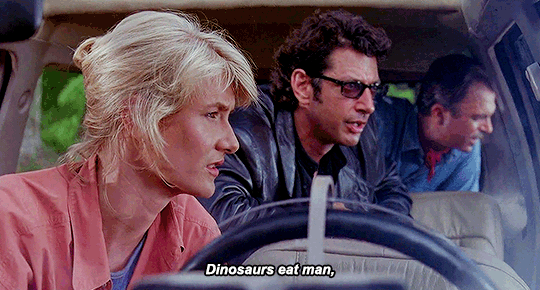
13. Captain America: The Winter Soldier
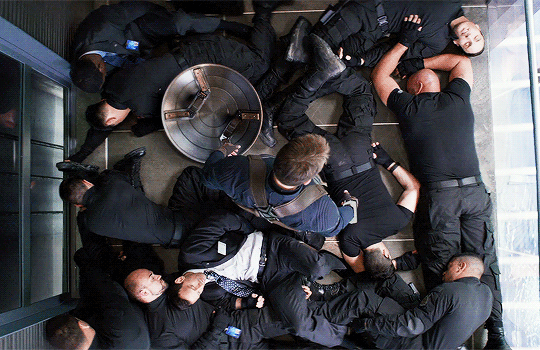
This particular gif looks like it ought to be Renaissance painting or something.
14. Night at the Museum

15. Hanna
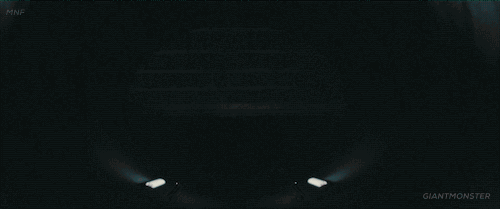
Apparently, freeway fight scenes are a thing for me? They’re a staple of CA:TWS, along with Terminator and the Matrix films. Not to mention a lot of the Inception set pieces. Basically, if a film is set in modern times and has any action scenes whatsoever, I want one on a freeway, kthanx. Maybe because I hate being stuck in traffic? Or maybe just because it looks cool?
Identity issues: boy does CA:TWS have them in spades. From Bucky’s brainwashing--”Who’s Bucky?”--to Natasha’s “Who do you want me to be?” questions abound. Natasha is constantly changing her identities--literally in the climax--and her hacking saves the day. Her final scene is very reminiscent of Sarah Connor’s in Terminator, too. For the first time, Steve faces an opponent who’s literally his equal and opposite, so the doubling/duality motif is reminiscent. And the Winter Soldier is also a slightly-more-human version of the Terminator! He even has a metal arm and programming!
Also, the film as a whole is super-suspicious of technology, and there’s the ‘80s references of the old computers in the bunker and “Shall We Play A Game?” Not to mention HYDRA’s surveillance thing is kinda like Skynet, plus they intend to target people for what they might do in the future, and not stuff they’d already done...
(NB: Both Terminator and CA:TWS are thematically reminiscent of Three Days of the Condor--which I have not seen, but have read the novelization. I fucking hate Condor, because it is such an obvious Male Fantasy, with an obvious Male Gaze, Cardboard Cutout Female Characters and a Doormat Obligatory Love Interest. Maybe the movie is better?? God, I hope so. But aside from its initial premise, Condor is thoroughly grounded in “the real world,” lacking super-soldiers or robots to make it engaging for me.)
What can I say about the three live-action TMNT films? Um, so they tap into the “underground” theme I have going, and also “nifty puppets/sfx”, “so much the ‘80s/early ‘90s,” and martial arts mastery. April and Casey are weird foils to Sarah Connor and Kyle Reese, and the Shredder and Darth Vader have a lot in common, as do Splinter and Yoda. April is inducted into the weird alterworld of mutant turtles and yakuza gangs, and the turtles get mistaken for entertainers/performers at several key points across the three films. The first two films are set in New York, with a focus on sewers and urban squalor, but also a pastoral retreat to April’s family farm during the training montage/rest and recovery sequence. Leonardo--always my favorite--communicates telepathically with Master Splinter, and the turtles stage a rescue like Luke tries in ESB and succeeds (on several occasions) in ROTJ. There’s a constant tension between maintaining the masquerade and uncovering the truth. There’s even a time-travel plot to take them back to medieval Japan, thus melding all of the themes/motifs together!
Not to mention the radioactive ooze that creates the turtles in the first place as a comment on questionable tech--it also creates some of the antagonists in The Secret of the Ooze AND GIANT MUTANT DANDELIONS.And there’s a sequence where they break into a lab full of early ‘90s computers that could be straight out of Jurassic Park. So, um, yeah, about that....
Jurassic Park: amazing sfx and puppetry. Human interactions with the other--usually but not always negatively. Badass botanist (wish Ellie were the main character instead of Grant but still!). Ominous jungle setting. Tension between science/tech and biology. Mutations as a plot point. “Life, uh, finds a way.” A corporate museum getting trashed by a T-rex in the climax--contrast with Night at the Museum, for a more docile take on the same motif! Tension between the truth and maintaining the masquerade. The perils of corporate power--see Ian Malcolm’s speech on the importance of moral responsibility and power. (Yes, he is an asshole and the author mouthpiece, but he’s also Jeff Goldblum, so he gets away with it.) Contrast this with Cyberdyne System in Terminator, and HYDRA’s surveillance system in CA:TWS. Also, shirtless Jeff Goldblum - contrast with the male nudity in Terminator, and Captain America’s and Luke Skywalker in tank tops and short sleeves. Also, “Dinosaur eats man / Woman inherits the earth” exchange. And GIANT REPTILES just like TMNT!
The Shadow: huge Asian/martial arts influence on the hero. Rigorous training with mystics in the wilderness. Psychic powers. Secret identity, keeping up appearances, and maintaining the masquerade. Self/shadow--it’s the hero’s superhero NAME; IT’S NOT SUBTLE. “Who knows what evil lurks in the hearts of men? THE SHADOW KNOWS! *ominous cackling* Fabulous fashion. Plot points involving a sarcophagus and busting into a museum (paging Night at the Museum). Amazing scenery, especially all of the hotel sequences. As always, I’m more interested in the female side character--in this case, Margo Lane--than anything else. Also, a scientist character played by Ian McKellen with questionable tech!
(I will never claim this film is good, and it has a TON of problematic elements, but even so, it made an impression on me, especially since I had been listening to a lot of vintage “The Shadow” radio dramas before I saw this, so I was familiar with The Shadow’s basic schtick. Also, even though it sounds like a cliche, The Shadow pretty much invented all the superhero tropes, so technically Batman and Dr. Strange owe him a debt and not the other way around... )
Hanna is very similar to Terminator, CA:TWS, and Matrix in that it features a protagonist being relentlessly hunted--in this case, by government agents very similar to those in the latter two films, only played by Cate Blanchett. Amazing underground lair/chase sequence, plus a fight in a German subway station; not to mention great desert sequences (hi, Star Wars!) and an abandoned theme park.
Matilda: the power of reading, a young girl saving the day because Adults Are Useless, classics references, newts, telekinesis. Like Steve Rogers, refuses to be cowed or lie, even when it would be in her own best interest to give in to tyranny. Interesting foil with Hanna, in that both are named after their super-powered protagonist, only Hanna’s powers are all based in incredible violence. Hanna is also wrestling with the question of who she is and what her purpose is in life, and she’s a survivor, just like Sarah Connor in Terminator. Also, a question of heritage and origins, as in Star Wars.
Night at the Museum: I usually don’t like Ben Stiller, and I think this movie would be stronger with a different lead actor, but Robin Williams is great as Teddy Roosevelt (mentor figure!) and it’s a natural history museum coming to life after hours with a giant T-Rex skeleton. Also, the miniatures are hysterical, and Akmenrah is great (contrast with The Shadow for their museum MacGuffin, too). Great sfx, too. Contrast with Jack Pumpkinhead and the Gump in Return to Oz, too. See also Steve stealing his uniform out of the Smithsonian in CA:TWS. It’s also a Found Family (or Family Reclaiming, depending on your point of view) along with The Secret Garden, and Matilda, and Star Wars and...
Anyway, I’m pretty sure a bot armed with this information could be used to generate stories tailor-made for me, which is both hilarious and frightening to think about.
Stories: I have a type.
1 note
·
View note
Text
Me just trying to predict things Kung Fu Panda 4
Predicting the villain:
This is just some common sense stuff but I’ll say it anyways.
For species it’ll most likely be another animal native to China. Most likely not a feline, bird or bull since it would draw parallels to prior villains.
The main enemy will probably be female, as to break the series of male villains. They’ve done it to Shrek, with fairy godmother.
Dreamworks said, during the creation of Kai, “He cant go brawler, since Tai Lung was brawler. He cant go smarter, since Shen was smarter. Where can we go? You have to go supernatural, bigger, and even more intimidating.” Just like the Averngers franchise, there’s a constant law placed where the villains must get progressively stronger the more the series progresses. Without the villain getting stronger, there’s no conflict —or at least not enough conflict to top the lmovie before it. The villain in Kung Fu Panda 4 must be at least different from the other three villains, or attains two out of the three assets that make up for prior villains. For example, the villain can be both smart and supernatural. Or be a brawler and a smarty. I think particularly for this one, the villain would need to have supreme authority and immanent or supernatural powers. While Kai worked in solidarity in terms of mind, it might be possible that the next villain might actually be villains with one superior guiding over them (the main enemy Po will fight). A regime-styled cooperation, with a leader. Each person in the group is bound to have a one on one against one of the Furious Five. This way, the group can actually do something without compromising the relevance of Po since he’s still the one who’ll defeat the main villain.
In this light, what might be the conflict?
The problem is that Po is nearly a perfect character. Oogway said it himself: he is both sides of the ying and yang. To reach such equilibrium, the soul must be stable, and Po would have been ridden of all evil (check my mirror of yin and yang theory out if you havent already pls). This means that Po would have to break pretty darn bad on the next movie. Every story has a scene where it shows a character’s breaking point. But to break a character who’s both sides of the yin and yang... well, that character would have to put through a lot of hell. That’s why I believe someone’s gonna die in the fourth movie [insert Mr. Ping], or someone’s gonna be temporarily taken away from Po [insert Tigress]. And here’s another thing: the first movie is about body, the second is about mind, and the third is about spirit. What’s left? The heart.
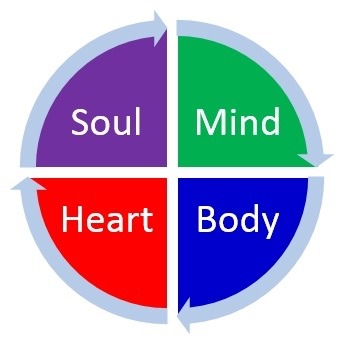
So... these are the core factors that make a human. Flesh is where the soul lives. Mind and heart is what makes a person. You know what heart means? Love. You what love mean? Either romance or family. Now the third movie was already a little bit about family, so does that means theres a little, you know, romance? You know. A certain Tigress that can make Po master the concept of heart. 😏 but in reality, I don’t think drreamworks will make Tigress hostage. It’s not enough catalyst for Po to break, unless they make it seem like Tigress died. And I just cant see it either... too cliche for a story so anticipated. It’ll make sense of Mr Ping would die.
It doesn’t necessarily mean someone’s gonna die though. But the internal conflict must have magnitude near beyond repair, and will damage his heart more than anything else.
What’s the settings?
They always try to change the settings. Valley of Peace. Then to Gongmen. Then to Panda Village. The valley was more a traditional chinese suburb of sorts. Gongmen was an industrial, probaby tech-savvy city. And the panda village was a playground. This one is unpredictable. They might start the movie of at the panda village instead of the valley (which is sad); they took the thousand mile bridge to Mongolia, so the panda village may border Mongolia. And that may mean they’ll travel upwards to the bordering country.
Will the movie fail?
The movie has been delayed till 2020. All three movies have above 80% in Rotten Tomatoes, which is extremely high for the website.
Shrek 3 was rated 48%, which is nearly half of the rating it earned in shrek 2 (89% —ok, not really nearly half but it’s a major dip!) Kung Fu Panda 3 was actually rated higher than KFP 2, which bodes well on the series’ consistency. Luckily (and unfortunately for dreamworks) this high rating perpetuates the pressure of making better kfp movies, to keep all the KFP movies clean And untarnished, to finish strong and not to taper at the end in quality like Shrek. They had four years to work on it. So we’re just sitting here pretty. Financially, the series is doing phenomenal.
But something else worries me. KFP 3 was waaaay to kid friendly for the series. Don’t get me wrong, it’s a childrens show. But a dark underlying plot lay deep in both 1 and 2. Heck. Kfp 1, Shifu lost a child. In kfp 2, implications of genocide. It seems kfp 3s light heartedness was a reimbursement for the darkness they placed in kfp 2. Hopefully, this big bane of appealing to the younger audience won’t negatively affect the deepness and the plot of the fourth movie. But with panda kids, with dim and sum, with mei mei, and with ling or whatever panda father Po has, I think that won’t be the case. If you compare kfp 1 and kfp 3, you could really see a huge difference in tone.
What will happen to the Furious Five:
Them failing after trying to fight the main villain without Po is to repetitive. It seems dreamworks likes it so that Po is the only one who defeats the villain, while the furious five just stands there and lets him skadoosh his way to da top. It’ll be nice, like I said, if they fought a group instead of just one villain. So that everyone has a share if villains, and Po can still take the main villain.
About Shifu and Tigress’s relationship. It’ll Also makes sense if Shifu would pass away, giving Po no choice but to accept full responsibility as the head of the Jade Palace and the teacher of the Furious Five. Or, it’ll also make kind of sense if Tigress is gone temporarily, making Shifu want to spend time with her. If kfp 4 is the last movie then their relationship would be mended. If kfp will really go up to the sixth, then theyll have to prolong the conflict because then there’s really no thread that keeps all the stories connected and make all the stories a one whole story. If they wanted the movies to essentially be a obe whole story, it would make sense if there’s a similar conflict transcending all films and wrapping at the end. With the rise of new characters, the furious will definitely have less screen time. ☹️☹️☹️☹️☹️😠😠😡😞🙃
Anyways, these are just my predictions. What do you guys think would happen?
#kung fu panda#kung fu panda 2#kung fu panda 3#master tigress#dreamworks#po#tigress#kfp2#kfp3#kfp#kung fu panda theories#kung fu panda 4#kfp4
38 notes
·
View notes
Text
Captain Marvel Spoiler Filled Review
A completely chaotic “review” that is just my random thoughts
spoilers under the cut
- i saw this movie with three of my close friends (one who is a dude and lifelong comic fan, and then two girls who are hella feminist) so I will include some of their reactions as well just to give an idea of what it was like for different people
- right out of the gate the Marvel intro montage is all Stan Lee. It was very heartfelt and the entire theater clapped. That pretty much set the mood for the entire movie
- I know a lot of critics found the beginning to be slow, and while I agree I didn’t mind it. One of my friends said she thought the beginning was a little too jumbled and she described it as “it’s like the directors learned how to direct as the movie went on”.
- The movie opens with Carol (at this point called Vers) having a confusing nightmare and trying to decipher it afterwards with little help from those around her. Because Carol has amnesia, the audience is left to feel what she feels which is confusion. I get what the directors were going for, but it was a little jumbled.
- I did find the dream sequence effective and did feel Carol’s confusion and fear when she woke up.
- She goes to her mentor yon-rogg and asks if he wants to practice fighting. They banter, and it becomes immediately clear to the audience that although Carol is confused they have a rapport with each other and she trusts him. Although he teases her, he *appears* to care for her. During the fighting scene there is more banter, but yon-rogg also tells Carol to control her emotions better. I know there were a lot of complaints from fuckboys about brie larson being stoned faced, but it makes sense for the character. She has emotions, and then is told to suppress them.
- it was satisfying to see her zap him with her powers anyway, and the whole “don’t show emotion” garbage he was telling her reminded me of like every female experience ever and first clued me in on yon-rogg’s shadiness
- On the train ride back from fighting, carol and yon-rogg have very flirty banter and eye contact and i was like ohhhhhhhh and interpreted it that they were a thing. I’m not sure if this was on purpose, but jude law and brie larson had great chemistry (brie had chemistry with everyone though tbh) and it was very hard to ignore. Plus they’re both hot. I leaned over to my friends and asked “they’re a thing right?” and they said “yes I thought so too” and “i think it’s implied”
- When Carol gets sent to the artificial intelligence place to be approved for her first mission I did find that scene pretty confusing and jumbled
- The mission itself was very dimly lit which made it a little confusing to understand/see what exactly was happening
- But it was cool to see Korath from GOTG. One thing this movie did really well was tying into other MCU movies and connecting everything. This movie definitely feels fresh compared to other origin stories but also fits in the the universe and makes it feel more complete
- When Carol was captured and her memories explored, ben mendolsohn’s voice came on as a voice over for talos and I leaned over to my guy friend and went “i fucking love ben mendolsohn” because ITS TRUE. His voice is so recognizable and then even underneath the skrull make up his acting was so distinct
- The memory exploration scene was jumbled like the nightmare, and it made me wish that we got more of carol’s human life backstory. I got the vibe that those scenes would have been better if they were fleshed out more instead of just little tidbits for the audience. that was one of my biggest complaints for the movie is the order the flashbacks appear and how little there were
- Carol screaming at one of the skrulls as she escapes was super funny and showed a lot of her personality. I think it separates her from a lot of heroes because most are nervous as they are trying to escape but she seemed confident in her powers and her ability and therefore could joke around a bit more
- The story definitely picked up once she crash landed on earth, and the 90s nostalgia was very funny and all of those jokes landed with the audience
-Samuel l jackson did a great job as a young fury. This fury is different. He’s much more idealistic and optimistic about the world, and functions more as a good cop than the fury we see in other mcu movies. It was also cool to see coulson again
- I really really enjoyed the scene when carol is able to make contact with the rest of the kree warriors the first time from the phone booth. Even though I got a bad vibe from yon-rogg I did get the feeling that he genuinely cared for carol’s safety. By the end of the movie my opinion about that was conflicted but I think that scene did a good job of showing that she was with them for 6 years which is a long time and why it took her so long to process everything that happened later because it countered everything she knew. It also did a really good job of showing that when she first landed on earth, she still was more kree than human. Her report back was very matter of fact compared to her later contact with them.
- Brie larson and samuel l jackson had GREATTT buddy cop comedy chemistry
- The train chase was very fun to watch, and like the trailer it was very satisfying to see Carol punch the “old lady”
- the scene where fury and talos (disguised as a SHIELD agent) look to see if the dead skrull has a penis got A LOT of laughs
- There’s a scene where Carol is standing outside trying to figure out her next move and this motorcycle dude pulls up and revs the motorcycle and tells her to smile. She just glared at him and then stole his motorcycle and it was ICONIC
- Again I really really really love the dynamic between Carol and Fury
- the second phone call when Carol makes contact with the Krees shows her more human side coming out. Brie Larson is great at showing emotion and as she was starting to put the pieces together everything was making more sense and less sense at the same time and you could feel her confusion and panic that something was off.
- Ben Mendolsohn is a gem and needs to be protected pass it on
- I LOVEDDDDD the moment when Coulson let Carol and Fury go without ratting them out just proving once again that he is one of the best and while i love loki i also hate him for killing him because coulson is too good for this world
- Things got really good when Fury and Carol went to Maria because I STAN FEMALE FRIENDSHIP SO HARD. From the first look they had so much depth and Maria played a huge part of helping Carol understand who she was.
- Also go Maria for being a badass pilot and single mom and amazing best friend
- MONICA IS THE BEST OMG. Her line to her mom about setting an example for her was A++++++
- Goose the cat was also great the only thing I’ll say about this is that Goose is a scene stealer. I don’t want to give the spoilers for Goose away because while predictable they are things I wouldn’t want to spoil for anyone
- I loved the subtle nods at gender inequality
- While the “twist” of Talos and the skrulls being good was predictable it was still very enjoyable. The predictability of it did not take anything away from it. There were references to how other planets treat refugees and Ben Mendolsohn did a great job with the pathos required for the role
- He also did an A+ job with the humor which I won’t give away because those lines are worth hearing fresh
- I think yon-rogg ‘s shadiness at the beginning is what tipped me off to the twist that he is the true villain of the story.
- Again, the movie’s flashback scenes felt like they should be my favorite part and filled with drama and be the emotional backbone, but they just didn’t get there. It took so much effort to decipher them that you didn’t really get to sit back and process the emotional weight of them. So when Carol ran out crying once her memories returned while I thought the acting between her and Maria was great, the meaning of the conversation and hug did not have the full weight because the audience (or me) was still processing what we just learned
- Annette Bening is my mom. Also if there was ever a biopic on elizabeth warren she should play her. Also I don’t like that we didn’t get as much Mar-Vell and the reveal that she was helping the skrulls was very rushed and I feel should have had more of an emotional impact. Plus more about her relationship with carol
- Talos reuniting with his family was incredibly sweet
- It’s cool to see where exactly the tesseract ended up between CA: TFA and Avengers
- Okay.why.do.yon-rogg.and.carol.have.so.much.sexual.tension. I was worried it was just me and I looked at my friends and was just like wtf is this are they about to fuck? and we basically agreed that their sexual tension kept building throughout the final act of the movie and that they wanted to hate fuck. After one moment during the fighting it kept building my friend went “yep THIS IS CANON” because you guys I am not kidding like I don’t ship them because yon-rogg SUCKS but they had the best accidental chemistry of any co stars ever
- The scene where Carol breaks out of the restraints and realizes her full power was BADASS. I loved the flashback montage of her always getting back up again and embracing who she it. POETIC CINEMA
- Though I personally did not like the scene where she is fighting off the Kree on the ship.. . I just wasn’t a fan of the song choice and some of the lines were just cliche. It was nice to watch Carol smile with each hit as her power increased because she was enjoying it which is something we dont see a lot i feel like but the scene did not reach its full potential for me
- It was cool to see ronan and have the space marvel movie characters be tied in. And interesting that we saw ronan before he went “rogue” Again this movie did a great job connecting the dots to other marvel movies
- CAROL IS SO POWERFUL OH MY GOD THANOS IS GOING TO GET HIS ASS KICKED AND IT WAS SO SATISFYING TO SEE HER JOURNEY
- speaking of satisfying watching her tell yon-rogg she doesn’t need to prove him anything and then blasting him into a rock cured my depression
- again i dont really understand their relationship because there’s the sexual tension, the seemingly genuine caring on his side that is conflicted with his utter manipulation and lying (a very good example of how abusive/manipulative people often don’t come across that way)... the fact that she doesnt kill him? like girl kill him and be done. It was funny when she grabbed his hand and then just dragged him to his ship, but then when he told her he couldnt go back empty handed the way jude law delivered the line made it seem like he was confiding in her and there was this intimacy. And then she was just like “boy bye im ending this war and idgaf what happens to you” because shes a queen and is done with his lies
- The ending with Carol and Talos was cute
- The ending with Coulson and Fury made me want to cry and scream because the avengers theme song began to play and we see the beginning stages of the avengers initiative which just made me think about how we have one month till all the characters we love die and this franchise has meant so much to me over the years
- the mid credit scene continued that excitement and dread.
If I was ranking the movie as a critic, I would probably give it 65%. It was good, I was never bored, the performances were great. But it definitely should have been better. There were just some parts of it that were underwhelming or didn’t deliver the way they should. My guy friend said it was just okay and that it felt more like a tie in to endgame and less about captain marvel herself. My other friends agreed on the 65% from an objective opinion, but we all want to see it again.
As a hardcore marvel fan, I give the movie 75%. I loved the characters, the easter eggs, the acting, the way the movie felt like a new beginning for marvel while still tying into past movies. It was everything I love about this franchise
#captain marvel spoilers#captain marvel#carol danvers#maria rambeau#brie larson#yon-rogg#jude law#nick fury#samuel l jackson#marvel#mcu#annette bening#mine#avengers endgame
14 notes
·
View notes
Text
Throne of Glass
Throne of Glass (Throne of Glass, #1) by
Sarah J. Maas
Series:
Throne of Glass #1
Published by
Bloomsbury USA Children’s
on August 7th 2012Genres:
Fantasy
Pages: 404
Stars: 4.5

Foreword
Now, when I say this book is a mess, I dont mean that I didn’t like it or that it was a bad book, believe me, it wasn’t. I had to wait 3 months to read this book because of everyone in my area wanting to read. I had to fight someones grandma to finally get my paws on this book, and let me tell you, it was worth it! When I tell you this book was good, my hands were calloused from turning the pages nonstop. I finished the whole book in one day! After reading several “decent” books in a row, this was just what I needed to restore my faith in books.SynopsisCelaena Sardothien is the best assassin in the land (so we are told) with a tricky past. Sentenced to a year of labor in a literal death camp where she is beaten and whipped, she has given up hope of escape after nearly being killed attempting to do so. Just when all hope seems lost, the Crown Prince and Captain of the Guards arrive to shackle her and drag her to the royal castle, where she thinks she is sentenced to death. On the way there, instead of worrying about her future, she is to busy considering how she can kill everyone around her because you know, she’s such a deadly assassin. (or so we are told)Turns out she isn’t going to die. Well, she wont if she becomes the King’s champion. In order for that to happen, she must compete in a hunger-games like tournament where participants engage in months worth of training and killing in a final fight to the death where one will stand to become the King’s personal champion/lapdog.This all sound pretty sweet to Celeana because she is a deadly assassin who wont have any problem defeating like 23 other people in a death match. The only thing that bothers her is that she has to operate under a secret alias so that no one knows who she is because if they find out who she is, they will all go running home in fear. She considers this a major blow to her pride.Everything is going well, Celeana is excelling at everything, but some maniac has decided to start killing the competitors mid-way through the competition and everyone is freaking out trying to find the culprit. In the middle of it all, Celeana must navigate through supernatural forces, betrayals and politics, and love interest(s).
My Thoughts on the Characters, Plot, World Building
“My name is Celaena Sardothien. But it makes no difference if my name’s Celaena or Lillian or Bitch, because I’d still beat you, no matter what you call me.”
This book was totally blowing up in my feed. EVERYONE and their mom seemed to have read this book before me and loved it, so me being the ardent bookworm that I am, went to my local library and put it on hold. I waited 3 months, but when I got it, I was so in love with the cover. It was so shiny and pretty that I threw aside the book I was just reading [Shadow and Bone] to read this book. I read the first 10 pages, and kinda wasn’t really feeling it so I went to the park and sat down under my favorite tree and spent the whole day reading the book and it was soooo good. Like, I just loved the book so much and was smirking at every bit of dialogue because it was just so goood.Celeana. She is really just one of those characters that that you slowly love more and more as the book goes on. Honestly, at the beginning, I didn’t like her. She just has that effect on me for like the first hundred 100 pages. One, because she seemed so vain and arrogant. She has just been released to live in a freaking death camp ad has to compete in a gosh darn death match and the only thing she seemed to care about was how pretty she was and how handsome the prince was. However, her backstory was just so sad and depressing, especially when you consider the fact that she is only like 17. If I had went through what she did at 17, I would’ve been driven crazy. Like, I go crazy when I stub my toe or accidentally cut my finger washing the dishes. She was whipped and beaten and watched her friends and family die. At freaking 17. Everyone I knew was giving the book like 2 stars because they didn’t think Celeana should’ve been as girly and arrogant as she was just because she was a deadly assassin. I get where people are coming from, but there isn’t an assassin rule book that says all assassins should be sulky, depressed monsters who wear black and carry knives in their shoes. I loved how Sarah J Maas purposely set her apart from what she thought people felt as though Celeana should’ve been. Most authors make their heroines weak, insecure, and dependent on a man. Celeana was beautiful, strong, and clever and she knew it. While she does have love interest(s), that isn’t the whole focus of the story and she conquers her battles pretty much by herself and takes the initiative.

The fact that she could still smile after being sent to a death camp makes me respect her so much. Also, she has to fight for the man that destroyed everything she loved.
I wont go into all the characters, but I will talk about Dorian and Chaol [Kale? Kol?]. Ok, the love triangle was really predictable and everything and I am not mad at Celeana for it, because its not like they are terrible men. They are both intelligent and arent desperate for her attention. They do their own thing and are even best friends. While I do think Dorian is a little boring and cliche’, I do respect him as a character, because I know how it feels to have apathetic and cruel parents. Not to much is revealed about Chaol, but I really loved him as a character. He actually challenged Celeana and wanted the best for her.Let me take the time out to mention my favorite character, Nehemia. She was so amazing, and strong. She wants the best for herself and her country and she is the perfect friend for Celeana because she isn’t afraid to put her in her place. I cant wait to see what Maas does with her in the future.The world building is so amazing. The map in the front of the book is beautiful, and the world seems like a lot of thought was put into it. The plot however really wasn’t. The contest is laughably set up. The trials and tests seems like they were thought up out of a stereotypical like gladiator movie or something. Like seriously, she had to climb a wall [one person died], shoot a bow, test some poisons [dont worry, no one died because they had antidotes] and to Celeana, it was never any issue. The night before every test, she didn’t spend practicing or thinking about it, she would just be thinking about Dorian or Chaol. And the tests only took up like 5 pages each at a maximum and some were even talked about in like one sentence. Especially toward the end. Celeana would be like, “Oh yeah, there was a test today, but Dorian looked so cute and I wonder how I can make Chaol laugh tomorrow.” The king seemed very cartoon villainy and gets like 5 mentions total and 2 instances where we meet him and the minor characters are laughable. Especially, the lame girl that kept trying to get with Dorian.My issue with Celeana
While, I did love Celeana, I also had several issues with her. For one, the author is a master of tell and not show. She tells us how amazing Celeana is at pretty much everything from pianos to swordsmanship to man snatching. We even get a small display of how amazing her fighting is when she took out a full grown man with little to no effort. We never get shown much of anything else. We get told how amazingly stunning she is and every time her powers come into play, everyone revers and fears her and talks about how dangerous she is. However, its hard to believe that a 17 year old is feared by men like 3 times her age. She was ridiculously over hyped in every aspect. Also, the other biggest aspect I never liked about her was how much of a blatant Mary Sue she was. She was just good at everything and no harm ever really came her way except the final scene where she is drugged and assaulted. She loves books, plays the piano amazingly, is just so beautiful, and is dangerous. Her only fault is her arrogance and pride, but the way its presented in the book, its more a negative personality trait and not a fatal flaw. I need to see that she has a flaw or else she’s just gonna seem unlikable. I’m not saying a person cant be beautiful and really good at something. I know a lot of people in real life who are smart, beautiful, and seemingly good at everything, but they always have a flaw.Overall, I loved the book and the way everything was set up and look forward to buying it on Amazon and reading the rest of the series. If you liked this review, comment, and stay tuned for my review on Crown of Midnight.

1 note
·
View note
Text
Kingsman: The Golden Circle
Got back from the Kingsman double bill a bit ago and am trying to put my brain into words even though I'm very tired and a bit numb and I smuggled five hours' worth of gin into the cinema in an Evian bottle so I'm as drunk as Harry at breakfast time.
OBVIOUSLY THERE ARE SPOILERS BELOW
Watching them back to back like this was interesting because it highlighted so clearly how much better the first one is than this fumbly ridiculous sequel. Not saying it's not good or not worth watching or whatever because it absolutely is worth watching for several reasons I will babble after another teacup of gin, but holy god is this really the best they could come up with? REALLY? A 100% true fact that I believe with my entire heart: YOU reading this, you are a better writer than people being paid obscene money to write films. I could easily name thirty fic writers off the top of my head right now who have an infinitely better grasp on pacing and plot and characterisation and dialogue than the people responsible for this stuff. I've not read any press or fan reviews but I imagine there's going to be a hell of a lot of backlash over so much in this from every angle because it's just so incredibly lazy and sometimes ugly and absolutely cannot stand up to its own hype.
Really good things:
* SPECTACULAR, EH!
* Eggsy/Harry and Eggsy/Merlin shippers, goddamn we have a lot of new stuff to work with. Chemistry through the roof, especially Eggsy/Harry (including possibly the best clingy desperate hug I have ever seen on film in my entire life WE HAVE WAITED SO LONG AND IT'S HERE AND IT'S BEAUTIFUL). That was the heart and backbone of the first film, I'm so relieved that it's not only survived but evolved into something fiercer and often messier. So so good to watch. Pretty sure I've got Harry/Merlin written down the inside of my heart like the words in a stick of rock, and though it's not romantic you get much more of a sense of their friendship here and it's all just a bit shattering and gorgeous.
* Pretty much everything to do with Harry's memory loss and Eggsy and Merlin trying to shock him into remembering was great, Y E S P L E A S E. And Harry's matter of fact comments about his loneliness, fuckkk. Angst writers, go forth with all this new information and break my heart some more! Fluff writers, fix him!
* Lots of beautiful intricate fight choreography which is literally all I need in my action films, so even if I did think the rest was complete balls (which I don't entirely) then I'd still be happy. Nothing comes near the vivid glorious gutpunch of the church scene as a standalone set piece, BUT there's so much Harry & Eggsy teamwork and please just inject this directly into my veins, it's amazing. Prepare for several years of me writing many more elaborate fight scenes than I already do.
* Part B to the above: Whiskey is a lot of fun and his fighting style is full on hardcore pornography to me.
* Merlin in a flawless Kingsman suit, RIP me.
* One of my Bespoke WIPs is about Merlin and Eggsy getting into the habit of going to the pub together sometimes and rolling home completely drunk with a kebab in each hand then trying to get in the house really quietly because Harry's asleep but they end up waking him because they think it'll be really nice to cook him breakfast in bed and Harry comes stomping downstairs in his dressing gown like "it's four o'fucking clock, put those frying pans away and drink some water!" while Merlin and Eggsy side eye each other and try not to giggle. So maudlin singing drunk Merlin was very nice to see :P
* Eggsy and Roxy bromance. There’s such lovely chemistry between them as well, it feels so natural and real, and it’s so good (and miserably rare) to see platonic friendships that aren’t shoehorned into some shitty boring love triangle.
* Eggsy and Tilde were seriously adorable. It ended up not at all satisfying as a romance plot arc because it was like CUTE - fight - marriage, it needed so much more screen time. Like all the important stuff was there, but it was just so abrupt. Include a satisfying romance or don't include one at all, fuck your lazy bullet points. But it started so well and I hope there's a ton of fic that treats them better than the script did. I appreciate the anti-Bond-ness of it all, that Eggsy's genuinely in love and wants to settle and is figuring out how that and his job can possibly fit together, especially with the complications of marrying into royalty. Interested to see where they take that if there's another film. Until then, soo much scope for fic.
* I'm shipping Harry/Elton like burning.
* Poppy was terrifying in a vaguely Umbridge-ish way. That sort of characterisation is always freaky, Julianne was great. So glossy and cheerful but absolutely dead in the eyes. And I'm ambivalent on Charlie, but I ABSOLUTELY want lots of brutal older woman villain/pathetic younger male minion smut. Please provide asap.
* T H E M Y T H I C A L B R E A K F A S T S C E N E I S R E A L
Really bad things: well where the merry fuck do I start haha.
* I will never ever understand why they thought it was a good idea to wipe out all the locations and almost all the existing characters at the very beginning. It's lazy shitty writing. If you feel like you need to shake up your fictional world you don't just knock it all down and start over. It's cheap and very shallow angst.
* I only have two middle fingers but I need about seventeen million to even begin to profess my disgust at them killing Roxy. I knew it was going to happen, it was the only spoiler I asked someone for ahead of time and it was not at all a surprise to find out for sure. Still utterly infuriating. The way people responded so positively to her in the first one is a real indication of how ridiculously low the bar is for female characters in action films ("good at something" and "not the hero's love interest" are literally the only two requirements), and JG/MV didn't even think enough of her to follow through on the absolute base level achievement they made before. Fuck everyarse involved in this decision.
* Absolutely revolting honeypot mission scene. Not really the fact that it exists, just the entire way it was handled and shot - so predictably male-gazey and laddishly "waheyyy!" that it kind of turned my stomach. Horrible and completely unnecessary.
* A million new characters and not enough time spent on any of them to care. Tequila was barely more than a cameo. Champ and Ginger hardly had anything to do. All the Statesmen (except Whiskey) were completely two dimensional and it's such a jarring contrast to the obvious care taken over Eggsy, Merlin, and Harry. It's not even because we already know them, I don't think? It's weird to try and explain. The Statesman characters just feel so rushed and shallow, there's no substance to any of them. Kill off Roxy and replace her with paper cut-outs, ok that makes loads of sense!!! Whiskey’s a level up from the others because he gets loads more screen time and some beautiful fight scenes, but his ~emotional plot twist fell completely flat. I don’t know what it was, the pacing or a boring cliche backstory or what. It was just dull as fuck. WE HAVE HEARD THIS EXACT STORY FIVE MILLION TIMES.
A bad thing that's somehow not really a bad thing even though I'm fucking numb and want a hug:
* I've been raving for ages to people about Roxy being killed off and trying to figure out a way to satisfactorily explain how I feel about a character dying for a reason and a character dying because a writer is a lazy bastard who wants some quick angst. Merlin's death was an A+ wonderful death along the lines of my dear fictional boyfrends Quincey Morris and Lee Scoresby and a million others. Maybe it comes from all the swashbuckly historical adventure stories I grew up loving, but I'm a desperate sucker for a good noble death. Characters brave and self-aware enough to look at the bigger picture of an impossible situation and realise that their death means a better outcome for the people they love? This is ABSOLUTE CATNIP to me. Characters who go down fighting to the very end. If a character I love with my entire soul has to die, this is how I want it to happen. Give them some agency and a proper goodbye.
I mean I fully expect him to be magically resurrected with fancy prosthetic legs if there's another film because we saw those wedding set photos of him in the nice neon green cgi stockings, so really I should be saying "death". I totally reject this one. (I reject Roxy and JB's deaths as well, but the big difference is I really can't see the filmmakers bringing them back. Eyeroll.) Maybe that's what's making it easier to deal with? A not-real noble courageous self-sacrificing death. That's about as good as it gets. All three of them get Oscars for this whole sequence.
Anyway the tl;dr of it is:
This film is a very beautiful, very patchy mess. The good stuff is absolutely gloriously perfectly incredibly wonderful. Most of said good stuff is the interaction between Eggsy, Merlin, and Harry, which is written and performed with real care and heart. Nearly everything else is relatively lacklustre filler, misogyny, and shitty nonsensical decisions. These people cannot write women.
I liked it? I will definitely see it 900 more times, mainly for wet terrified Harry and gorgeous fight scenes. But ffs, how can it possibly be this difficult to pinpoint the reasons why people loved your extremely successful creation and consider including them in future plans?
I'm feeling fairly zen about everything. I kind of trained myself ages ago to think of sequels as just another bit of fanfic, so it's going to make absolutely no difference to the cheerful fluff porn and fight scenes I like to write. What I'm annoyed about isn't so much to do with ~new canon~ limiting what we're allowed to create for ourselves now, because that's just silly. It's more about being pissed off at the shoddy state of action films, particularly women in action films, when it seems like it should be SO EASY to take these astronomical budgets and create something groundbreaking. I'm so tired of this unimaginative lazy narrow-minded bullshit.
#kingsman#kingsman 2#kingsman spoilers#kingsman: the golden circle#kingsman: the golden circle spoilers#tgc spoilers#is this enough spoiler tags haha
192 notes
·
View notes
Note
Have you seen the bold type do you recommend it?
*steps up on soap box* ahem
Why I recommend The Bold Type
I know that a bunch of people have written posts like this, but here’s my iteration, which comes from a place of: 1. Love, 2. being the exact target audience, and 3. watching too many TV shows that don’t give me what I want. The Bold Type, as it turns out, is all about going after what you want. It is about rejecting the societal standard that tells women to become meek in the workplace and, instead, use that standard as a bar over which you can raise yourself and become even better. The Bold Type is along the same vein as the short-lived MTV show Sweet/Vicious— feminism for women, to entertain women, to show women in lights that we are interested in seeing. I think that the success of this show could cause a boom of similar shows— sleek, modern, female-centric. Watching The Bold Type isn’t just about The Bold Type. It’s about supporting the content that we want to see.
There are three main characters— Jane, Kat, and Sutton. All are best friends. All are in different places in their careers. All are successful in their own right. And all work at the fabled Scarlet Magazine, a magazine written by women for women to be their saucy older sister, guiding them through life. Instead of 50 Ways To Please Your Man, it’s 50 Ways To Please Yourself. Instead of Lipsmackers That Will Stay On While You’re Lipsmacking it’s Lipsmackers That Will Stay On While You Take On The World. Their boss, Jacqueline (we’ll get to her later; she’s my favorite character) refers to this as “self-feminism.” Other people are important, absolutely, but make sure you’re taking care of yourself and your needs too when it comes to work, relationships, and sex. Scarlet Magazine is about real women who are motivated, who are struggling, who are successful, who are scared, who are human. It’s a publication that I, personally, would love to read.
Jane works for the writing department. She is a young writer who is thirsty to prove herself, but is also conscious of the fact that she’s low on the totem pole. The pilot begins on her first day as a writer, when you find out that Jane is a smart, capable, confident young woman who was raised on Scarlet Magazine. This is her dream job. She’s organized, thoughtful, and resilient. Although she tends to complain about her assignments, she always comes through and makes them her own.
Kat works in social media— in fact, she’s the head of her department. She tends to see the world through the lens of her camera even when she isn’t working. Kat, by nature of her position, is always on-call. She sees what is beautiful about the world and what is beautiful about people. She also knows, with great clarity, what is important to her, and always fights for these issues— perhaps a little relentlessly. Kat excels at her job, but she doesn’t excel at relationships. She likes “casual,” preferring to have flings. When she meets Adena, a beautiful Muslim lesbian, her idea of relationships and her sexual identity goes out the window. I am looking forward to seeing Kat and Adena’s relationship evolve just as any ol’ heterosexual relationship on television would— full of ups and downs, but also full of love, sex, and moments that just make you hold your breath. Luckily, these two ladies already serving a full course meal.
Sutton is the final female in our group of girls. Undoubtedly the lowest of the three girls on the corporate ladder, Sutton’s reason for that is simple: she didn’t have the socioeconomic privilege that Kat and Jane had been lucky to have, and got off to a more disadvantaged start. Sutton had fought her way to her position tooth-and-nail. And, better yet, she’s damn good at her job. Sutton is the most tenacious character on the show. She’s spent years fighting for herself, and she isn’t about to stop now. The romantic plot-line revolving around Sutton involves her dating a superior in the company, which is normally a story arc that might make me cringe, but Sutton is 25 and Richard is probably in his late-20s, early-30s. There’s lots of respect between the two of them, and their relationship isn’t a conflict of interest because Richard works for the legal department for the company that owns Scarlet. This relationship is adorable, sexy, and Sutton absolutely holds the power in it, meaning that we, as audience members, can root for these two.
The Bold Type shows female friendships exactly the way I know them to be. They love and support each other. They overshare. They talk over each other. They play and tease. They make cultural references in a speedy fashion that temporarily makes you think you’re watching Gilmore Girls. They get selfish. They apologize for being selfish. They fight and make up. They change the direction of their conversations constantly, flashing from topic to topic like strobe lights, showcasing how incredible women are at multi-tasking. It’s the dream female friendship that all of us are desperate for on TV, and no romantic sub-plot is going to tear that down. It’s like Friends without the guys, and as much as I love Chandler, with a show like The Bold Type, I think we can live without him.
Perhaps the best character on The Bold Type is the girls’ boss, Jacqueline. She is the head of Scarlet Magazine; the leader who knows what she wants and knows how to get it. As fearless as she is, she is not to be feared. Jacqueline may be respected, admired, and adhered to by her staff, but if you’re looking for Miranda Priestly, you won’t find her here. Jacqueline cares about facilitating the careers of her employees. She rules her disciples with a firm but fair hand, often giving them more than they deserve. Life is hard, especially for women in the corporate world, and Jacqueline understands that. Her character’s scenes are always an absolute treat— the ones I look forward to the most when I sit down on the couch to watch The Bold Type with a glass of red wine and a feeling of safety on the side. Because I, as a viewer, have learned in just a few episodes (five, to be exact) that these writers are ones that I can trust. They’re speaking using my voice, the voice of my friends, the voice of my peers, the voice of my generation.
Turning your television on to The Bold Type means hearing women discussing issues that are relevant to you. It means being inspired by their tenacity and individual power. It means enjoying an episode full of sumptuous fashion, invigorating music, and a bustling city life. The Bold Type is a show that you can turn on and see yourself reflected in your TV screen— whether it’s your sexual identity, your racial identity, or the personality traits that make you who you are. It’s not that The Bold Type never utilizes tropes, cliches, or predictability. It’s that they do it differently, they do it better, they do it while conscious of what it is and what their show is.
The Bold Type doesn’t necessarily preach that you a required to live your life boldly. The lesson to learn here is much simpler than that: live. Simply go out and live your life, get what you want, make yourself happy. Stay safe, stay kind, stay supportive, stay healthy, stay loving each other. Perhaps Jacqueline describes this mentality best in her speech in the pilot episode of the show. She says, “I expect you to have adventures. I expect you to fall in love. To get your hearts broken. I expect you to have sex with the wrong people; have sex with the right people. To make mistakes and make amends, take a leap and make a splash. And I expect you to unleash holy hell on anybody who tries to hold you back.”
So you heard her. Let’s go unleash holy hell, ladies.
541 notes
·
View notes
Text
So, I participated in NaNoWriMo last month.
Nothing new. I’ve done this write-50,000-words-of-a-book-in-a-month thing since 2006.
But this year, after coming to the realization that I am absolutely garbage at plotting stories, I put more effort into plotting this year’s book than I ever have.

I mean, this is my living room right now.
And to help me out with my plotting, I revisited Robert McKee’s Story (which I had first visited in a screenwriting class a couple of years back). And I’ve been thinking a lot about McKee’s chapter on the inciting incident.
As McKee defines it, the inciting incident “radically upsets the balance of forces in the protagonist’s life” (190), and this event, “for better or worse,” then “[arouses] in him the conscious and/or unconscious desire for that which he feels will restore balance, launching him on a Quest for his Object of Desire against forces of antagonism (inner, personal, extra-personal). He may or may not achieve it. This is story in a nutshell” (196 - 197).
According to McKee, the inciting incident must happen onscreen, within the first 25% of the story, and it must compel the audience to ask the “Major Dramatic Question,” or, basically, What is this story ultimately leading up to? What is the protagonist going to face up against in the climax?
...yeah, my storytelling abilities are so limited that I’ve been thinking a lot about the most basic aspect of storytelling that there even is.
And when I say thinking a lot, I mean a lot! Since the “novel” I wrote last month is technically supposed to be a Kill la Kill Alternate Universe fanfiction, I spent a great deal of time considering what Kill la Kill’s inciting incident is... and this is a question that was so much harder to answer than it really should have been for someone who A, has a degree in creative writing, and B, has written over 180,000 words of Kill la Kill meta.
And, honestly, I’m not sure I could even tell you now what the inciting incident is.
My first thought was that the inciting incident is the murder of Ryuko’s father. The death of Isshin Matoi greatly upsets Ryuko’s life and brings her to Honnouji Academy to find answers.
Easy, right? I mean, summaries of Kill la Kill will basically all start with, “Searching for her father’s killer...”
But this event is basically shown in flashback, even in the manga adaptation, which begins with the moment of Isshin’s death and then cuts to the present-day Honnouji Academy. And Ryuko’s life isn’t exactly drastically changed until she enters Honnouji Academy, anyway; it’s going there that really gets the story going.
So would the inciting incident instead be Ryuko’s introduction in the first episode, where she stands before the school and the audience knows, “Well, she’s going to fight this system”? After all, if we work backwards, the climax of Kill la Kill is Ryuko and Senketsu’s fight against Ragyo, the woman who had built the system that the audience knows from the first few minutes of the first episode that Ryuko is going to fight. Since Ryuko discovers who killed her father halfway through the series, it’s clear that this knowledge isn’t what restores balance to Ryuko’s life or to the story---what ultimately restores balance is the destruction of Ragyo’s system and ideology.
But then there’s that question of what Ryuko wants. An inciting incident is all about want and desire, because it’s the inciting incident that pushes the protagonist to do something to get what they want (which in turn pushes the story forward). Ryuko might say she just wants answers to her father’s death, and it might seem that the inciting incident is the moment of his death, but what Ryuko’s really searching for is love and friendship; in fact, it’s even flat-out stated in the series that Ryuko’s reasoning for her revenge quest is to know her father better.
But if Ryuko’s unconscious desire for love and friendship is actually what drives her and the story, then is it really the dismantling of Ragyo’s system that restores balance to her life, and is it really Ryuko’s entrance to Honnouji Academy that sets off the plot? Is the climax of Kill la Kill actually more internal? Is it Ryuko’s full, unabashed embracing of love and friendship that ultimately restores balance, more than any physical battle?
I mean, I’ve certainly argued as much! Ryuko and Senketsu save the world through their teamwork, and their teamwork restores balance to both the world and Ryuko’s life by saving both.
But, if this is the case, then it can’t be Ryuko’s entrance into Honnouji Academy that sets off the plot. The inciting instead would instead be Ryuko’s meeting with Senketsu: Senketsu throws Ryuko’s life out of balance by forcing her to work together with someone when she’s used to being completely on her own. All Ryuko wants is love and friendship, but she has to conquer her own insecurities and self-hate to truly accept companionship. When Ryuko and Senketsu beat Ragyo in the finale, this is a representation of how Ryuko finally accepts and loves herself enough to fully accept love from others.
Maybe???
Yeah, I don’t even know anymore.
And that’s the thing: when it comes to writing advice and story structure, everything is so subjective to me. I take all writing advice---especially McKee’s---with about an ocean’s worth of salt. What works for one writer won’t work for another, and what one writer finds “good” another won’t.
And as for story structure? You could break down a story any which way and come up with a compelling argument to support your thinking. I’m sure all my proposed “inciting incidents” for Kill la Kill---be it the death of Ryuko’s father, her entrance into Honnouji Academy, or her meeting with Senketsu---could each be argued to be the scene that ultimately “drives” the story, and all these arguments could have a boatload of evidence behind them and be perfectly valid interpretations.
And the same goes for other stories I considered while writing this book too, such as You are Umasou, a cutesy dinosaur anime movie that I examined because it does a great job of maintaining a cutesy, child-friendly tone while also explaining and never shying away from the fact that carnivores need to eat meat to survive (which is kind of what I’m going for in my story, I think). The inciting incident could be that Heart the Tyrannosaurus rex hatches to a family of herbivores, or maybe it’s when Heart realizes that he’s a carnivore and abandons his family, or maybe the inciting incident takes too long to happen and it’s when he comes across Umasou, a baby herbivore that Heart intends to eat before Umasou mistakenly thinks of Heart as his father.
And maybe Robert McKee would say that Kill la Kill and You are Umasou are horribly-structured stories. Maybe the inciting incidents aren’t clear and the “drive” behind the stories are too hard to see. But maybe it also doesn’t matter? McKee praises the film Tender Mercies to death, but---and just coming from someone who’s seen some clips and understands the basic story---that film seems like a total snore fest. Maybe it’s basically a “perfect” story with a perfect structure, but what does that matter if nobody really likes it except for bitter film people like Robert McKee?
In the end, I don’t really know what to think except that no matter what, there has to be something that draws people to a story. I was attracted to Kill la Kill because I liked the friendship between Ryuko and Senketsu and found it incredibly endearing. You are Umasou is sweet because it’s a story about belonging, family, and parenthood. I can’t tell you how well structured these stories are, but even if they’re badly structured, they both have something that gets people watching---Kill la Kill, after all, was a massive success, and You are Umasou, though far from as popular, does seem to be well-liked overall.
But in my own novel? There are lovely scenes, maybe---a princess finding someone she thought dead, a story-within-a-story about a beautiful empress with an ugly daughter, a family reluctantly taking in an orphaned girl, a maligned demon saving that young girl’s life. But there are too many characters to get anyone really attached to just one, and the narrative switches around so much, and if you asked me for my “back of the book” summary of the story, I would just stare at you and say, “Uhh...”
There are perhaps many possible “drives” behind Kill la Kill, but in my own work, it seems I struggle with finding just one. More and more, I feel like McKee’s report for rejected scripts (18):
Nice description, actable dialogue. Some amusing moments; some sensitive moments. All in all, a script of well-chosen words. The story, however, sucks. The first thirty pages crawl on a fat belly of exposition; the rest never get to their feet. The main plot, what there is of it, is riddled with convenient coincidence and weak motivation. No discernible protagonist. Unrelated tensions that could shape into subplots never do. Characters are never revealed to be more than they seem. Not a moment’s insight into the inner lives of these people or their society. It’s a lifeless collection of predictable, ill-told, and cliched episodes that wander off into a pointless haze. PASS ON IT.
And even all the notecards and crayons and research books in the world can’t seem to help me do the most basic thing a writer should be able to do: write a story.
#shut up goop#long post#really long post...#writing#i guess#kill la kill#robert mckee#venting#?#anyway this is my life...#gonna keep trying but oh lordy...#i don't even know how 'fanfiction' it is either though since my brother read the first 10k words#and all the names have been changed because i wrote a lot of the story in public and i'm a secret weeb believe it or not#and i didn't tell my brother (who is familiar with klk) that it was klk fic#and he didn't even seem to notice lol#i don't know what this says about my characterization or plot or what...#sigh#klk fic#maybe apparently
7 notes
·
View notes
Text
IT (2017) Review.
I had been excited for the new adaptation of IT since I first saw that iconic picture of Pennywise, grinning creepily with pleasure and contempt. I couldnt wait for it. When the first trailers dropped it got me even more hyped and excited to see what Muschietti would bring to the table, as I was unimpressed with the miniseries. Today I saw IT, and have to say am fairly underwhelmed by it. What I hoped would be a thrilling, scary and atmospheric horror film was an oddly edited, cliche and predictable film. Over this review I will be talking about what works, what doesnt, what I loved and what I hated and finally, an overall score out of 10. Please remember this is all opinionated and very personal, rather than a group opinion. What I loved: Personally the best part of the film for me was the losers club. Not only were all very well performed and gave off a very real and serious vibe, the children acted like children, a rare occurrence in many modern films. The kids throughout this movie are swearing, making your mum jokes and mentioning dick size, like a kid would. Muschietti really nailed this side of the spectrum and due to the great performances by all the children and realistic and relatable behaviour, I found myself really enjoying the club, far more than I thought I would. Another thing I thoroughly enjoyed was the coming of age theme throughout. I really liked this and thought it really added to the story. In a way Pennywise could be a metaphor for all the problems and hard times these kids are facing, and them dealing with him is them working together to beat their daily problems. It may seem stereotypical but I thought it was sweet to see the club grow and learn in such a small amount of time, all of them facing their fears and issues (some more literally than others) Im glad the story wasnt just, "oh look, there's an evil clown who is hurting people, let's go beat him up," as for me this would have made the film flat and uninteresting. I'm very glad it was included and felt it really added to the film. Pennywise is a weird one. I thought he worked at points but at others I just hated him. Saying that, he definitely had far more good scenes than bad but I still just felt unimpressed at his character. It wasn't even Bill's fault, it was just the look and feel to him in general. Again, sometimes he was incredible but sometimes he felt to comedic and cartoon like. Overall though, he was a very strong character and I did enjoy when he was on screen (most of the time) The cinematography in this film in my personal opinion was beautiful. So many scenes were shot so well. Muschietti made sure to use locations and places to their full effect and it shows. The shots used also fit in with the scene. For example when outside in the day the shots were wide and vast, showing off the beauty of Derry or the quarry. However when inside a location it felt claustrophobic and cramped, adding to the intensity and fear of the scene. The lighting was also on point. When in a dark room it felt eerie and as an audience member I felt blind but at the same time little details and important features were clear and visible. When outside the lighting felt very true to life without blinding you of course. Both lighting and the cinematography were very well done and should be applauded. The sound design in the film really sold it for me. Most of my fear produced actually came from the sound rather than whatever else was going on. One scene which I will never forget is Pennywise exiting the cupboard. It really did chill me. But the main reason for doing so is him tapping his long, gloved fingers on the side of the box. It was genuinelly terrifying. The sound was perfectly managed, sounds in the foreground were loud and violent whilst little ones in the back were small and hard to pick up, but the amount it added to the atmosphere was great. I'm very glad the sound was well done and pin pointed in just the right settings and times as it really added to the film for me anyway. What I didn't like: To me, the jumpscares in this film were terrible. I hoped to every possible god that all the jumpscares would be fair and needed. Alas, this is not the case. Thankfully, IT didn't stoop to the level of the classic "it's just a ....." jumpscare but far to mamy were predictable and dull. There were pointless loud noises and violins squealing at me from the screen and a lot of the scares were cheap and commonly used in Hollywood films. There were probably 7 scares which I predicted and out of all of them in total, only a few made me jump. Which isn't great. One thing that really annoyed me was Georgie's walkie talkie screeching whenever he ran by. Stuff like that is what ruined this film. Yes, it is better than a loud bang or smash, but still. I could do better and I've never made a film. It really did upset me as I do love a good jumpscare, but there were very few to be found. As much as I did love them, the kids in the film made such stupid and contradictory decisions. It really got to me. They would constantly wonder off by themselves after all being told not to and it was so annoying to watch. Even Bill, who said to them all countless times to stick together decides to walk away from the group. You could argue that this is Pennywise luring them away with his powers but I personally believe it's a dull way to create another cheap scare. Another thing they all do is the classic, "let me go in this dark room, nothing could go wrong" This is just so pathetic. For example the library scene with Ben. No one would ever follow those eggs and go down there. It felt wrong and fake, exactly the opposite of what this film wanted and was meant to be. I do see why it was needed, but there were far better ways to lure the characters. Pennywise, as mentioned above, did work. But there were so many instances where he didn't. And what does it all come down to? CGI. What ruined him for me was the large amount of CGI that went into the film. I understand that it's nessecary and in some ways it did help, but it sucked any amount of realism out of the film. What does this result in? A lack of tension and fear. For me, the more realistic, the more scary. That's why for me, The Strangers is the scariest horror of all times. It was so real and plausible that it made it far more intimidating simply due to how it was handled and filmed. No CGI, no demons or ghosts. Just 3 insane people trying to murder a couple. It sounds basic but it is so much more scary than IT. For example, the garage scene was so poorly created it nearly made me laugh at how conical Pennywise looked. It just didn't work for me. I do understand it's hard to create a film like this without using it, but I believe that more practical effects could and should have been used. Even if that had meant making it less extravagant. One thing I enjoyed about the miniseries is that it seemed more real because there was no (or very little) special effects or features. This made it feel more real, and in turn, added to the danger and intensity. I wish this interpretation had done the same. The editing was so odd in this film. It went from happy to sad to scary in seconds. It felt misguided and oddly created. A good example is the basement scene. It goes from Pennywise screaming and trying to kill Bill to Bev sat on a staircase in the sun, content and happy. This breaks the tension with ease. Whats even weirder is that it never show the aftermath of the scene, Bill's reaction or thoughts are never shown, it just stops. It's almost like a scene was cut. It felt wrong and misplaced. I understand in some aspects why what was done but still, it felt so strange. Many scenes felt cut and half completed, some seem to short and others to long. The best word for it would have to be inconsistent. I really enjoyed some of the editing, but disliked others. The kiss scene. Is dreadful. This is not a fairy tale world. This is a world where a young boy has his arm ripped off and is pulled into a sewer. Magical kisses do not tie in well with that sort of theme. This infruriated me. Genuinelly. I don't understand. It wasn't to develop character or even a relationship, it wasn't to advance the plot, it didn't add anything to the story. It took away from it. What seemed so real was whisked away in seconds. Was it meant to show that the underdog can always succeed or help others? I for one, am clueless. It really did disappoint me. Am I supposed to believe that a kiss from a random boy can wake up a girl who has been affected by the deadlights? It was so random and wrong. It felt like it had been ripped straight from Disney and plonked straight into the film to add to it's character and charm. It didn't work. At all. And it really did spoil the film. It was cheesy, unasked for and laughable. I still can't think of any reason for including it. My final complaint is the end scene. The final fight. For a start, I'm glad it wasn't long and drawn out over 20 minutes. It would have become boring. But it felt so odd. How Pennywise just collapsed to the floor and started to deteriorate. Again, the end scene reminded me heavily of a Disney film. "We beat you out of love and teamwork." That sort of thing. I understand what they were going for, and it was a sweet ending but it felt wrong to put it in a film like this. What happened to the battery acid? That was great and it made sense. But instead we get the classic fall to his "death" scene. I'm glad they all conquered their fears and I'm glad that they could beat their common enemy but it could have been made far less lovey dovey in my personal opinion. I get that it was to make the audience feel and perhaps even relate but to me this fell very flat. Another issue regarding the scene is Bev. I do understand that sexual abuse must be a horrifying thing do deal with but the fact that Pennywise didn't scare her is dumb. He is the true manifestation of any fear, a monster, a beast. Yet she isn't afraid? Again I know that the whole overcoming her fear had to be included but it was fairly annoying to see that she wasn't bothered even in the slightest. It may seem like nitpicking, but I cared about the film a lot and some bits and pieces made little sense to me, regardless of what the general public say. Overall: IT is not a bad film. It's not incredible, but far from bad. It had it's scary moments and ideas and the film is certainly not for the weak hearted. Themes and ideas are shoehorned in nicely and darker topics are presented in a careful and appealing light. Performances all round are great from everyone, especially the losers club. Pennywise is an intimidating villain throughout and never fails to either disturb or creep you out. It does have it's flaws, but as does any film, and it is impossible to say that IT is not an entertaining film. Even if I wouldn't class it as a true horror it is very amusing and fun to watch in pretty much any situation and I would recommend it if you're ever bored or have nothing to do. Unfortunately I didn't feel it lived up to it's hype but hopefully chapter 2 may be able to improve and evolve from that. I didn't watch the film I was expecting and hoping to see, but it did work and it did achieve it's goal; to entertain, and entertain it did. Overall score: 6/10 Best shot?: The best shot of this film for me is when Georgie attempts to crawl away from Pennywise, his arm bleeding and him crying. IT's inhumanely long arm appears from the drain and we know it's all over for poor little Georgie. So harrowing, but so good.
1 note
·
View note
Text
From 'No Water Crisis' To Permanent Water Restrictions? Mayor Mullet Swims Upstream
The TCC has just announced revised but renewed water restrictions, without the decency of an explanation. Are they permanent? And if so, why, and will water rates be suitably reduced? Or are they just letting out water infrastructure settle down after the flood (ha!)?Another masterstroke from the council officially found to operate a culture of secrecy. Also The Pie recently indulged himself with a small rant about police representatives so often turning the narrative to the trauma suffered by officers when they attended confronting events, and in some cases pushing the real victims into the background. Well, it would seem Bulletin iditor Jenna Cairney has taken a leaf out that playbook, giving her own staff hero status for simply doing their jobs. Now its got really embarrassing. Also this week, a tiny overlooked flaw in the new stadium makes a mockery of the papers completely silly look into its future And why didnt we think of it: the Popes obvious insight into the sinning of Cardinal Pell. (Bentley is on a break this week.) So first As Nana Used To Say, Self Praise Is No Recommendation. By tradition, print and online journalists have always sought the powerful but respected recognition of their work through by-lines, never unnecessarily inserting themselves into any scenario they are writing about, and generally they and their work used only to come in the public spotlight around Walkley time. Times have changed, and journalists are now players rather than observers, as perceived glamour and power infest newsroom and the minds of those undignified and egotistical enough not to know better. Jenna Cairneys cliched gurgling about the Bulletin staffs reporting of the floods(indeed admirable if after the fact) has taken wing on a monsoon of congratulatory self-praise, which is bound to end in a crash landing. The Bulletins people certainly did their work under difficult circumstances, meriting an in-house herogram. But the self-congratulation, carrying the hidden agenda of regaining public trust, is reaching a nauseating stage. But it was this excerpt from a two page AD for themselves that raised the hackles of some.

Jenna Cairneys particular take on the role of digital media is simply nonsense amply demonstrated by an angry reader below, reinforced by the utter tripe about the the nature of the Astonishers FIFO staff (bye bye, Clare Armstrong, leaving so soon, after what, 12-15 months?). And one of those looking askance at that empty breast beating was a person very prominent in the fight for Townsville water security who sent this email into The Nest. She chooses to remain anonymous at this stage, obviously mindful of the albeit waning power of the paperand the propensity of News Corpse to bully people. She writes: Oh Jenna.It goes without saying that the community is sad at the now widely publicised loss of your possessions and property damage during the flood. Its also sad that Bulletin journos (who were doing their job covering the event), came home to a stressful reality.Many people who were on duty and others who were simply volunteering that night, met with similar devastating scenes. So why the need to raise your staffs salaried contribution above others in that two page essay? (Feb. 28th excerpt above). The difference is, that in your role as a Newscorp editor, you can take out a free double page ad that more than hints that Bulletin staff were behaving altruistically. Its your job and theirs Jenna, to cover local events and to report the stories. Its what newspapers do. As for breaking news, sorry, the reality is that the official sources and conventional media combined, did not provide as much timely information as they could have, either in the lead-up or now beyond the inundation. The lag time is well known and the nature of alternative news sources most people turn to now. Social media was way ahead from the get-go with updates and locals were able to have real time conversations street by street. Twitter and other apps were abuzz. The online Bulletin discussion was comparatively quiet. A new FB group NQ Disaster Watch and Noticeboard was convened within hours and membership swelled to over 30,000 in a day or so. If mainstream media (MSM) like yourself were the go to source, thered have been no need or the huge momentum that saw this community group formed. Other social media groups connected so the updates were informed, continuous, and illustrated with live footage and heartbreaking images of the unfolding event. Many of these were subsequently used by MSM. Beyond the critical hours, was the paper the first media source to warn and educate residents about the deadly likelihood of meliodosis? How about Ross River and Dengue fever? Instead, a freshwater croc up a gum tree was a major headline, so much so that it became a Newscorp icon nationally.

Will the Bulletin give other local groups a free column or page to boast about their contribution? How about the army, SES, police, charity groups, volunteers from near and far, neighbours helping each other, strangers risking their lives to rescue people and pets? Further claims in your Feb. 28 essay are frankly unrelated. Helping to get funding for water infrastructure? The one-year-wonder fifo journo who first took credit for this, has moved on already, with this spurious claim on her CV. The paper always publishes the truth? Only local journos contribute? Paul Murray is local? While were at it who are real people? This story hasnt come across as intended Ms. Cairney. At least there were only a few grammatical errors. So take off the true blue Aussie hero cape wee Scottish lassie and stop telling the local community they area breed apart. That label is better reserved for some prominent individuals who spruik or are spruiked about in your small scale publication. Whew, The Pie will be out of a job at this rate. Jenna, the fact that you felt you had to say what youve said vulgar, condescending trite waffle while at the same time desperately pleading to be loved gives the lie to the fact that YOU KNOW the Bulletin lost any real touch with this community a long time ago, and you hoped this was an opportunity to re-establish this limping paper as part of the core of this community. Given the immediacy of your paean of praise, so soon after the crisis and is still an on-going emergency, readers (such as they are) can smell the desperation. And this embarrassing overkill in claiming some sort of achievement by your troops when they were simply doing the jobs they were trained for and are paid to do, has all but wiped out any goodwill the paper re-established through an outstanding effort of after the fact reporting one of the citys greatest disasters. But Hey, Maybe Thats Your Idea Of A Welcome Mat Wonder wholl be winging in for this one.


Hey, maybe the mayor will name and shame you if you dont choose a local to take the helm. Oh, wait a sec not likely, given that the mayor who took a wet lettuce leaf to smack insurance companies who might dare to use out-of-town tradies to fix up flood damage, appeared a tad hypocritical. Apart from buying her mayoral chariot (plus shipping costs to Townsville) out of revengeful spite in Brisbane, Jenny Hill chose not to buy local when she needed legal representation in her losing stoush against Clive Palmers defamation matter. Instead, this firm in Adelaide Street in Brisbane. Forked tongue doesnt even start to describe it especially when she uses the VIP lounge of the airline she wanted us all to boycott Qantas. The Chatterati At Full Pelt Over Clives Guest List Speaking of Clive Palmer, perhaps more has been made of just who didnt attend his so aptly titled Titanic dinner, rather than who did. Plenty of Townsville C-lister desperates rolled up, and plenty named on the table plan were no shows. The standard reply when asked why they went along from some was curiosity (fair enough) and others for the feed and free booze (even more honest). Several said the tucker was terrific. Plenty of ice buckets too, one imagines. Like everyone else, The Pie trolled through the list and had a quiet chortle at a few of the freeloaders, but read nothing into it, all pretty predictable. Except one. Check out who was, apparently sitting next to our old mate, Tony Raggatt on Table 20.

One Andrew Crook, who presumably (if he turned up, and cant imagine he wouldnt have) flew in for the event from his Gold Coast base. Now The Pie wasnt there, and it turns out Australia has Andrew Crooks surplus to requirements, including a well regarded legal eagle. But the old birds money betting that it was this bloke, Clives former media adviser.

Hey Clive, if that is external lap band surgery for your tucker intake mate, it aint working. Now Mr Crook is a kinda upfront guy, who for a couple of decades ran his own media company with the very upfront name Crook Media. Based, where else, on the Gold Coast. And it is Crooks good fortune that his old boss didnt have his Titantic knees-up off-shore, because, unless things have changed, Mr Crooks passport has been in the custody of the AFP wallopers for a few years now. This is why.
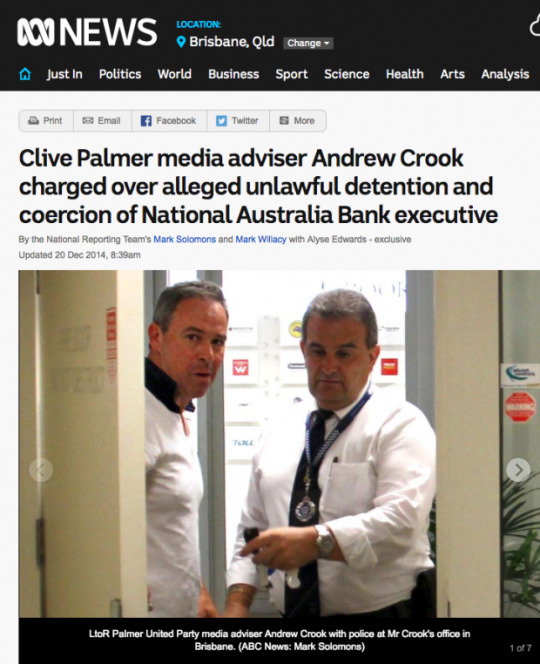
The matter return to court on a most appropriate date , April 1, where a trail date may finally be set. Not wishing to pre-judge anything, but The Pie hopes that after Mr Raggatt shook hands with his dining neighbour, he counted his fingers. When The Real News Goes Away and Jenny and Lil Patty are back farting rainbows for the The Astonisher to print, wonder how long before the money sinkhole called our new stadium will be back centre stage. One would like to think that recent events might have caused some nervous reassessment of this foolhardy waste of public money. Its the classic good news and bad news. The good is this, reported by Australian Leisure Management magazine:

The Queensland Department of Housing and Public Works, leading the delivery of the new stadium, has advised that while the site was affected by some water logging as a result of the extreme rainfall event it did not experience overland flooding. The Department advised 100,000m3 of fill was used to raise the building platform above the Q100 flood level before construction commenced. Which is as it should be, but while that is an accurate summation, its not good news at all for the short sighted, bull headed rush to built this white elephant. A little while ago, we got this pants-wetting dopey glop from the Astonisher.

Bit late in the day to realise this snippet of the bleedin obvious, youd think, especially for a council and government who both love a good old, protracted jobs-for-the-boys business study followed by a feasibility study for as a trifling matter as what to do with some dilapidated tin sheds on Flinders Street West. But in the hands of the nameless author of this inane bit of tub thumping (hi, Jenna, that you again, luvvie?) the blind idiocy reaches new heights when we read this:


Sure, perhaps it shouldve been: with a population one third again as large as Dunedin, and high profile footy team like the Cowboys, Townsville would be set to match that part. But The Astonisher yarn goes on

But there may be a teensy weensy problem with the entertainment ideas when compared with the Barr Stadium. Here, see if you can spot it heres the Forsyth Barr (just two rs, thanks, Jenna)

Forsyth Barr stadium, Dunedin and heres what our new economic saviour is going to look like when finished.

Spot the difference? Yes, your right, ones GOT A BLOODY ROOF AND THE OTHER HASNT. Bottom lime: our new stadium may be flood proof, but it certainly isnt rain proof for any entertainment ambitions. And entertainment business is risky enough, dont think that wont be noticed. Once again, the vision of Mr Magoo infests our planning leadership. Speaking Of Which, Two Questions Have a look at this, then contemplate two questions:

If the staff at the counter in Walker Street can tell you what you want to know if you visited the Flinders Street office, why do we have extra staff to do that in a rented CBD premises (when its open)?Why open an office in this location anyway, the sadly true dead heart of Townsville, where there are bugger all people wandering about? Why not at say The Willows, Stockland, or Castletown? Or have they done that, lots of votes out that way, yknow? This wouldnt an abortive attempt yet again for Mayor Mullet to use public money for her electoral campaigning? Nah, she wouldnt do that. Would she? And Seems Another Magpie Prediction Is True On more than one occasion, The Pie has suggested we need to change our approach to water usage in Townsville, and has been waiting for the well reasoned debate on the issue. Fat chance. Thats not the way they do things down in the Hermit Kingdom in Walker Street. It is rule by fiat and stop whingeing and wanting a say in these matters, peasants. With the amount of water around at the moment, this TCC ad in the Astonisher yesterday phrased to make it sound like happy days are here again is apparently Mayor Mullets way of announcing water restrictions are here to stay.


This may indeed be a sensible and prudent forward looking move, but questions remain dangling in the face of the inundation that has just sucker-punched our city, isnt the almost comical announcement worthy of an explanation? But more importantly, will we keep paying for water we cant use? Will water rates be reduced? Wouldnt like to be in a dark room with George Pell waiting for an answer to that one. Speaking Of His Un-Eminence, In Defence Of George Pell, By The Pope

The simplest undeniable defence that the kiddy-fiddling cardinal could have used came too late for him. No less than the Pope had the excuse for Pells abominable actions a few days ago in Rome Pell is, according to the Pontiff, a victim in all this. This from comments during the week. The Magpie February 27, 2019 at 12:32 am(Edit) Can you believe it? The best the Pope can do is say child abuse was Satans doing in other words, THE DEVIL MADE HIM DO IT!!! There was a time when that wouldve been a few hail marys and off to another parish to prey on. Perhaps that has changed now, but not a skerrick of real responsibility, just the old fairytales that have always worked before. They have either learnt nothing, or will continue to trust their evil style of infrastructure that invites nay, virtually guarantees abuses, and not just sexual ones, but emotional ones as well. The devil is indeed involved, but hes not at the gates, hes got the keys to the city. Vatican City, it would seem. (And all other religions, bar none). But for all that, The Pie totally agrees with one conclusion of the Vatican meeting of the boys in their pretty dresses and helicopter caps they said something concrete must be done about the child abuse by the predatory priests. Too right it must, and allow The Pie to suggest that this would be a the most effective CONCRETE idea

these should applied with great force to the offending anatomy to ALL paedophiles but make sure you keep your thumbs clear. Its A Week Of Questions, So Heres Another from Comments Well it is a hot air event, Canberras annual festival of Balloons. But there was a disgraceful excess of it before any flight lifted off. So heres the question: How is this OK for public consumption, kiddies and adults alike

but this is not?

Answer: Because some disturbed PC drop kick judged that it looked like a golliwog, and thus had it banned from entering the event. But what if it does look like a golliwog to some (it nowhere near does, anyway) maybe to black people, it might make them feel included? Did anyone ask? And the swerve in eligibility is a bit late in the day, as this completely unremarked appearance in 2011 attests.

Think we need another pair of bricks. When The Book Is Written, It Will Be Called Trump And Consequences This weeks gallery from the world according to Trump, who it would appear, has met his match.


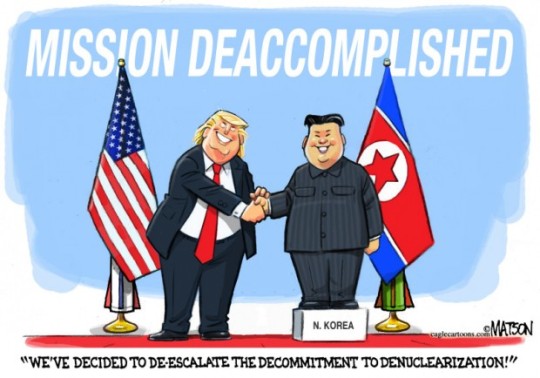

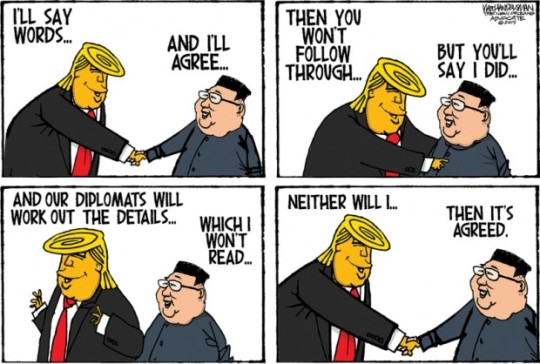




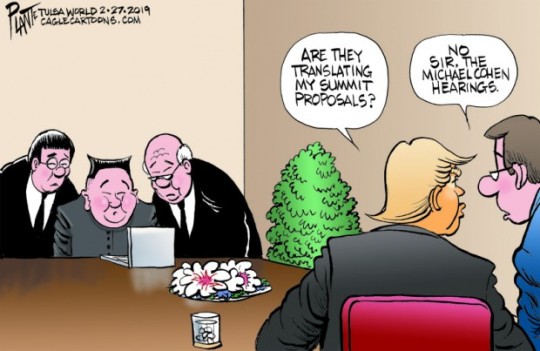
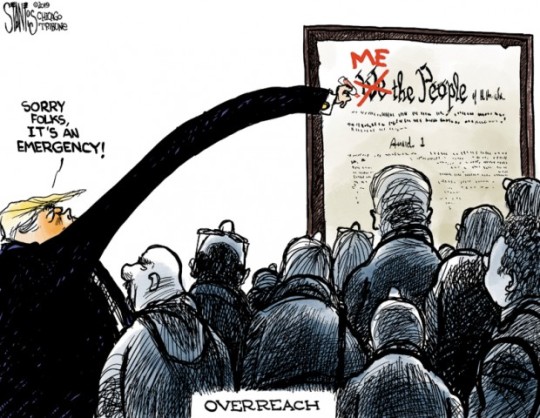
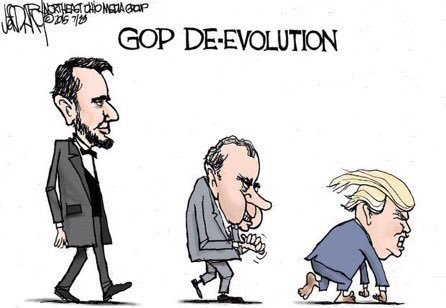
And Finally, Is Theresa Mays Brexit Rocket Finally About To Blast Off?

. The world has survived another week, so look back and start working up your outrage and have a thunder in the comments, which run 24/7. As you know, this load of old cobblers is a labour of love (for Townsville) by The Pie, and it will always be free, but if you can help defray blog costs and the estimated five days it takes to put this weekly missive together, a donation is always appreciated and most helpful. The how-to-donate button is below. http://www.townsvillemagpie.com.au/astonisher-iditor-jenna-cairney-does-a-sally-field-pitifully-wailing-you-like-me-you-really-like-me/
0 notes